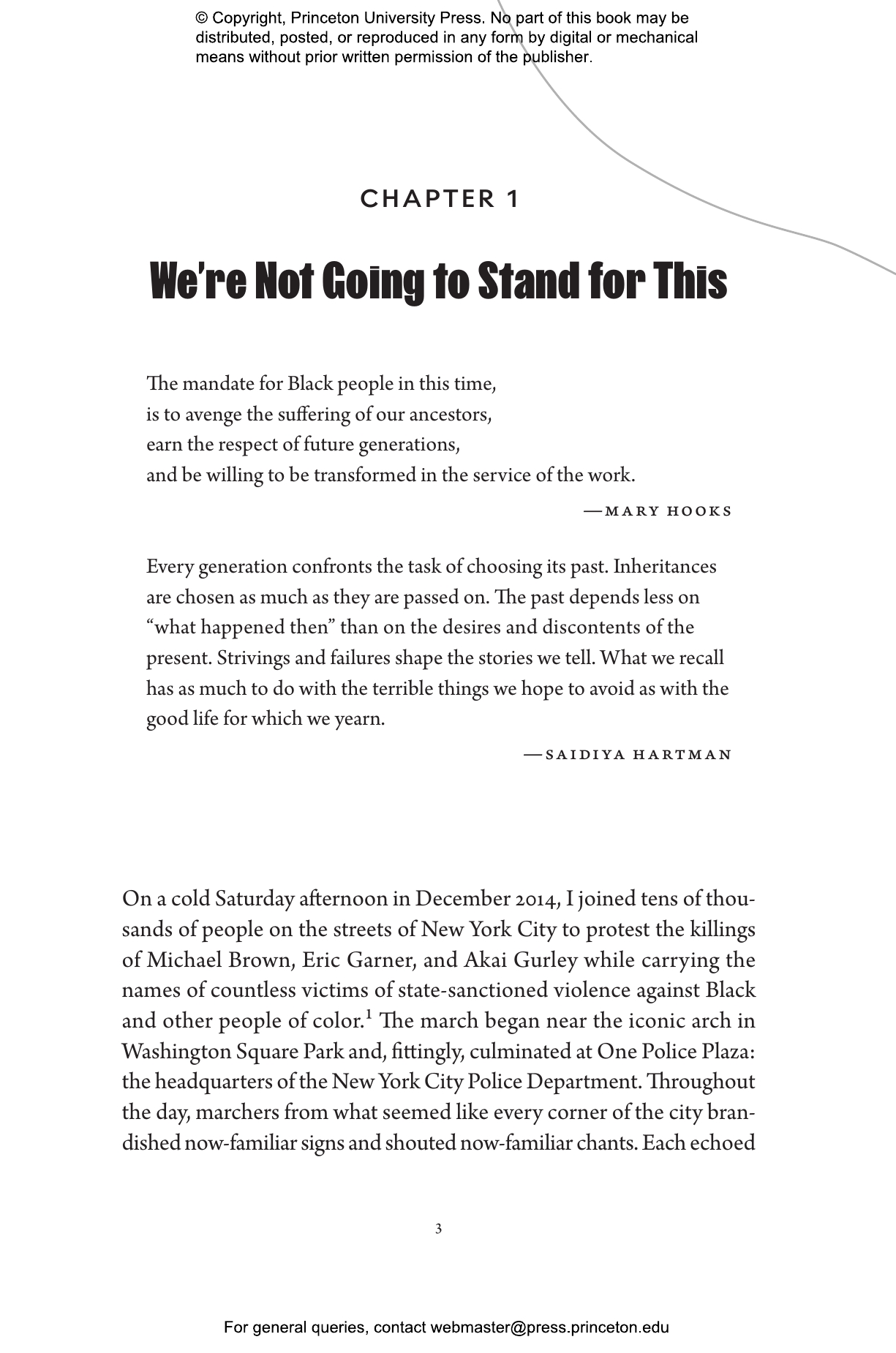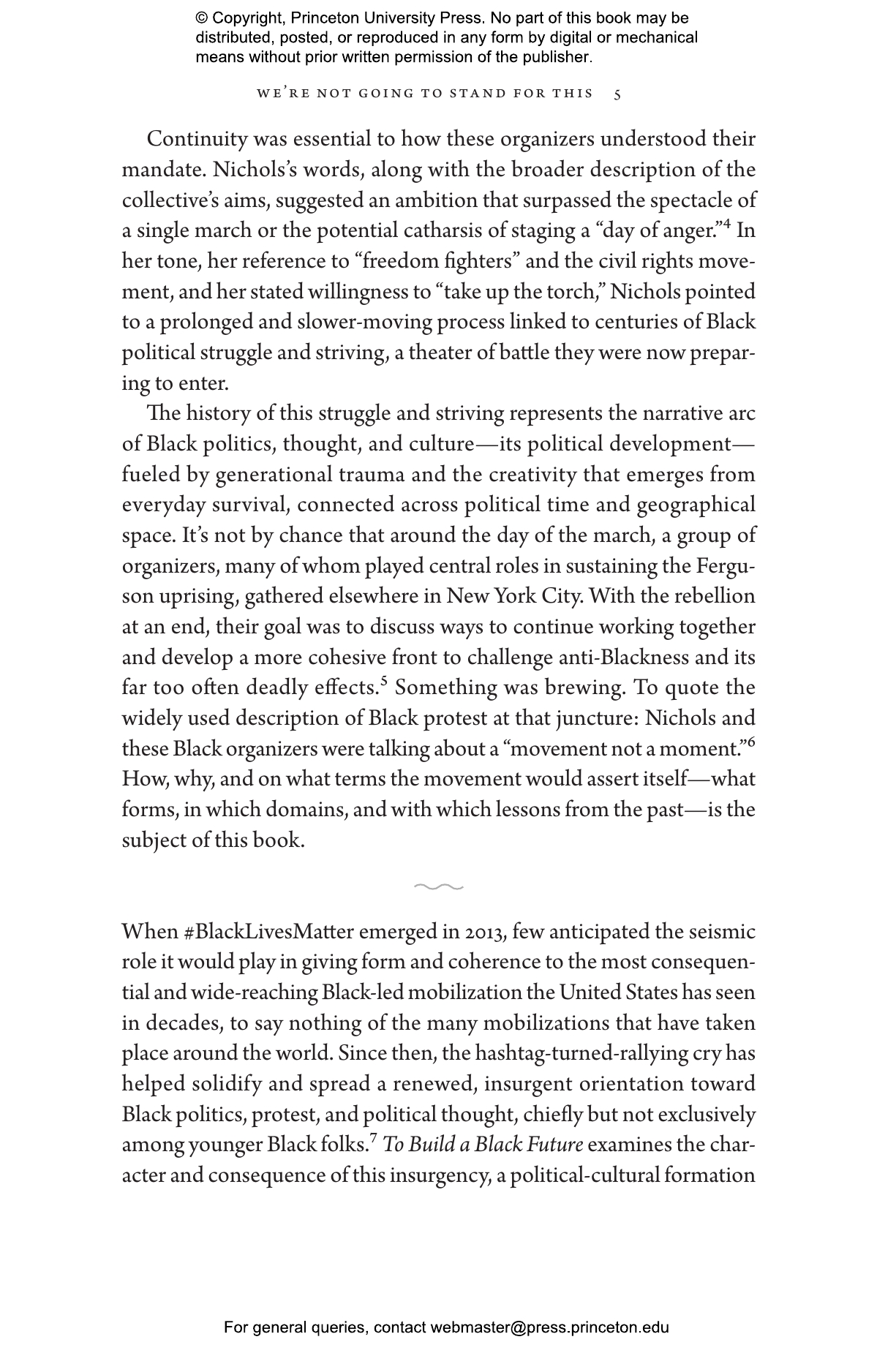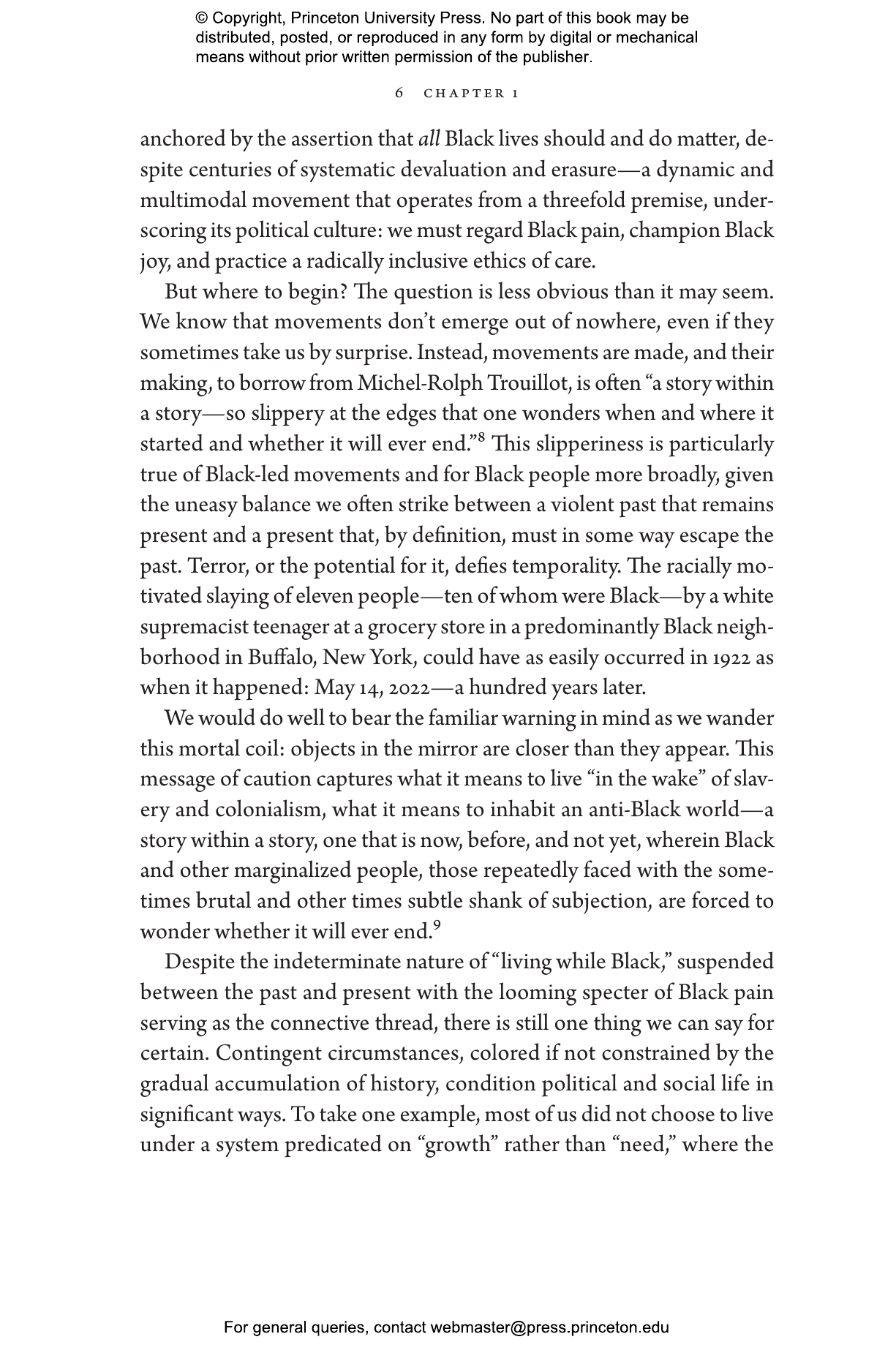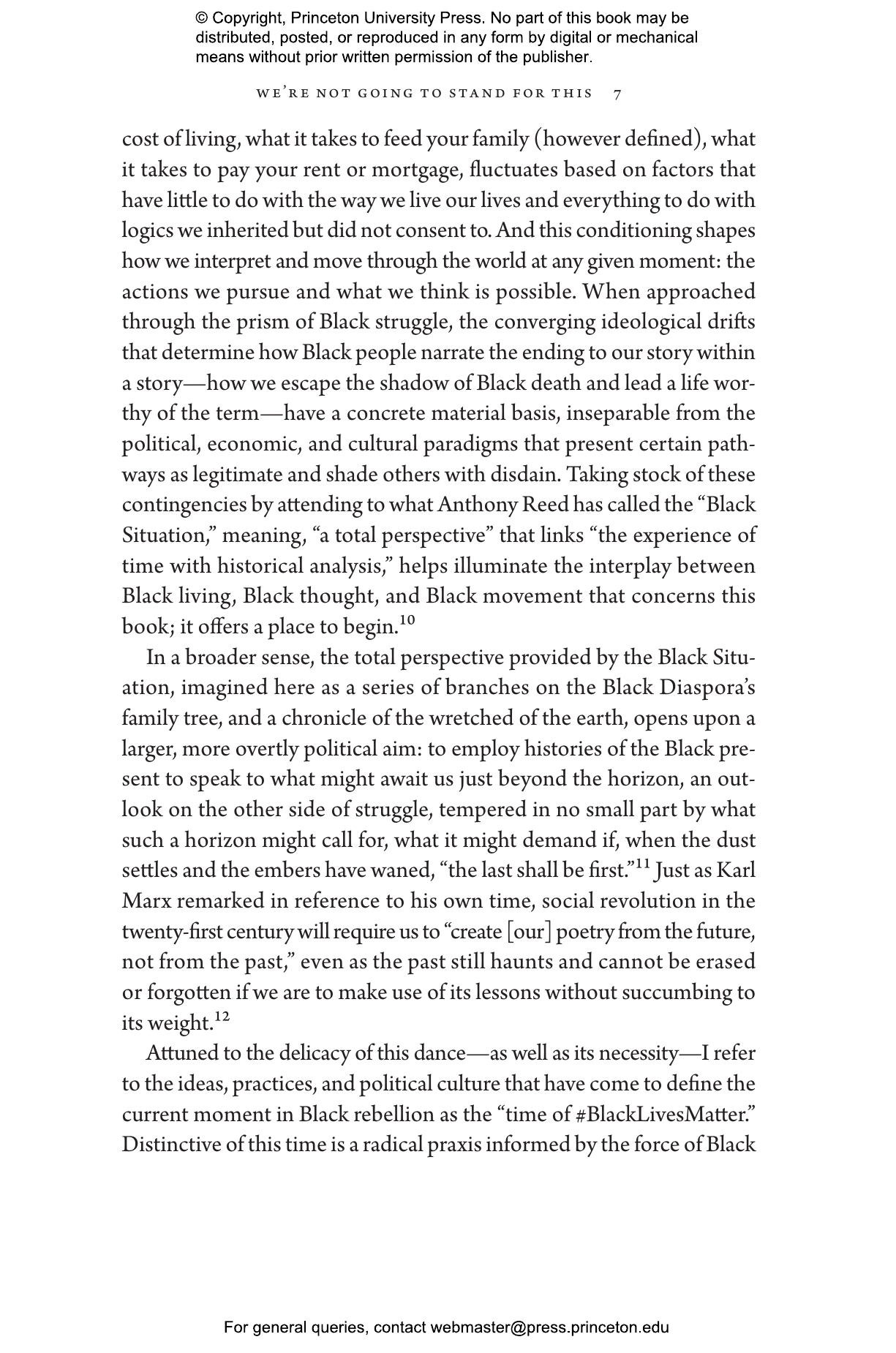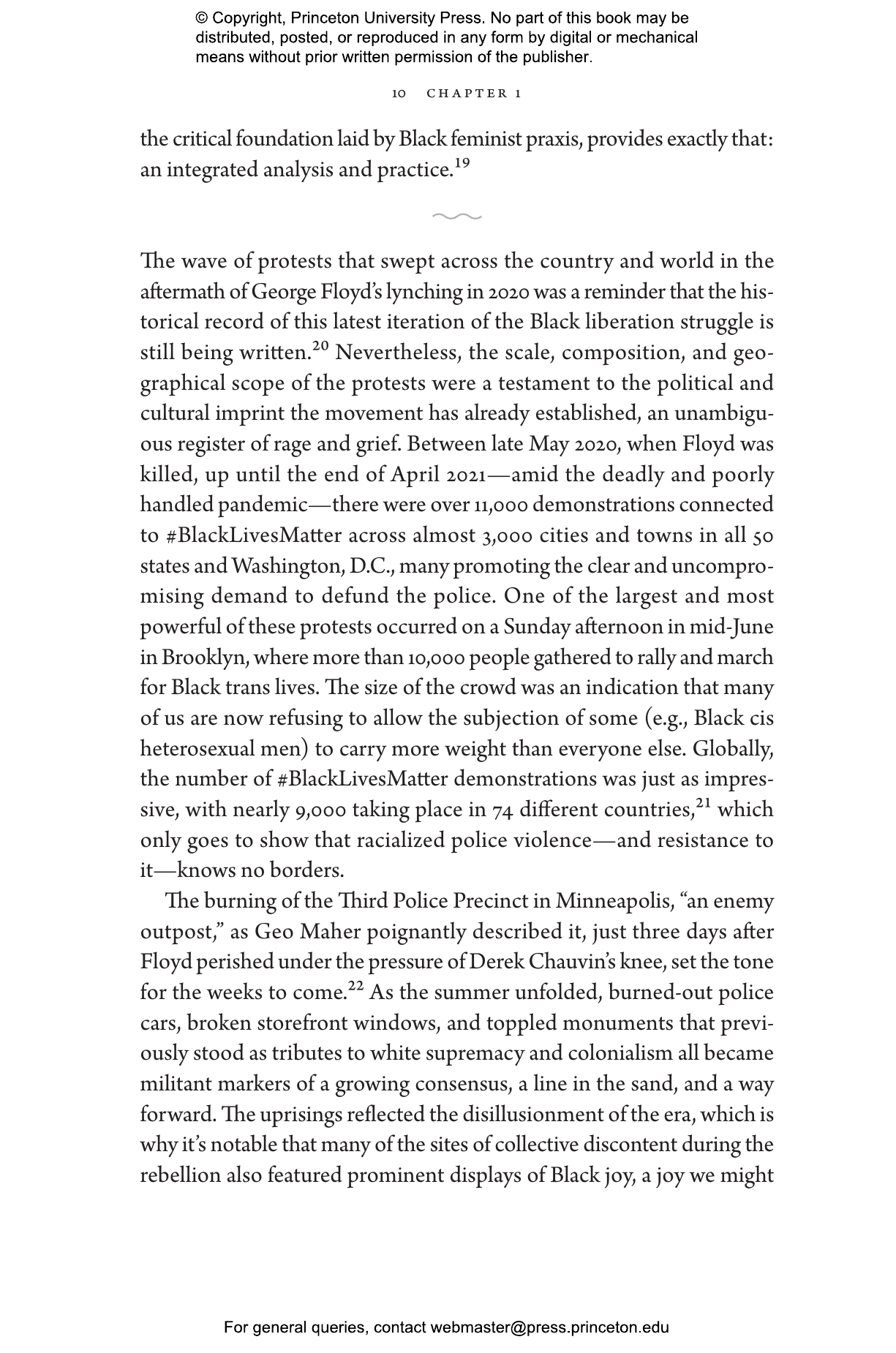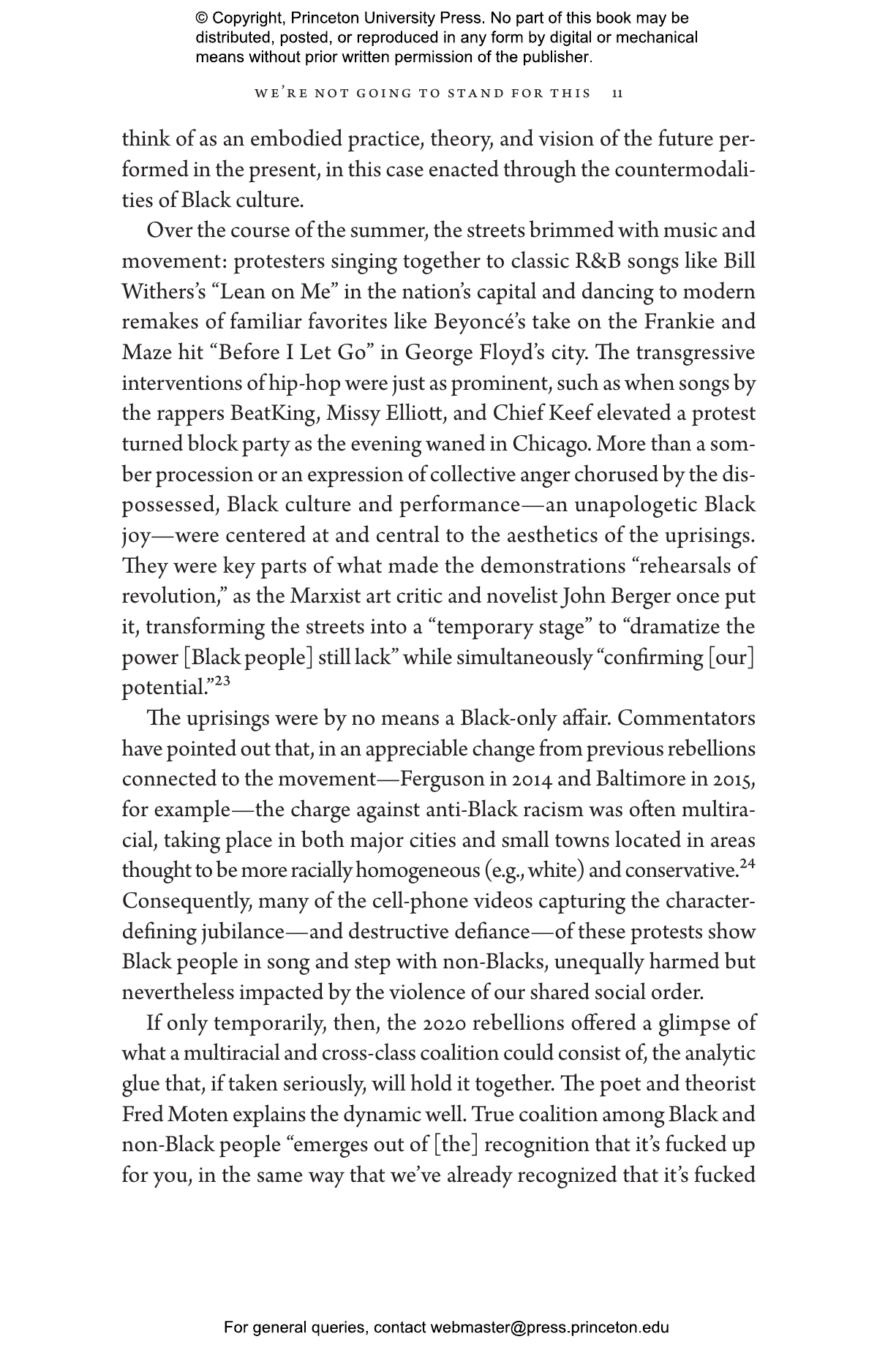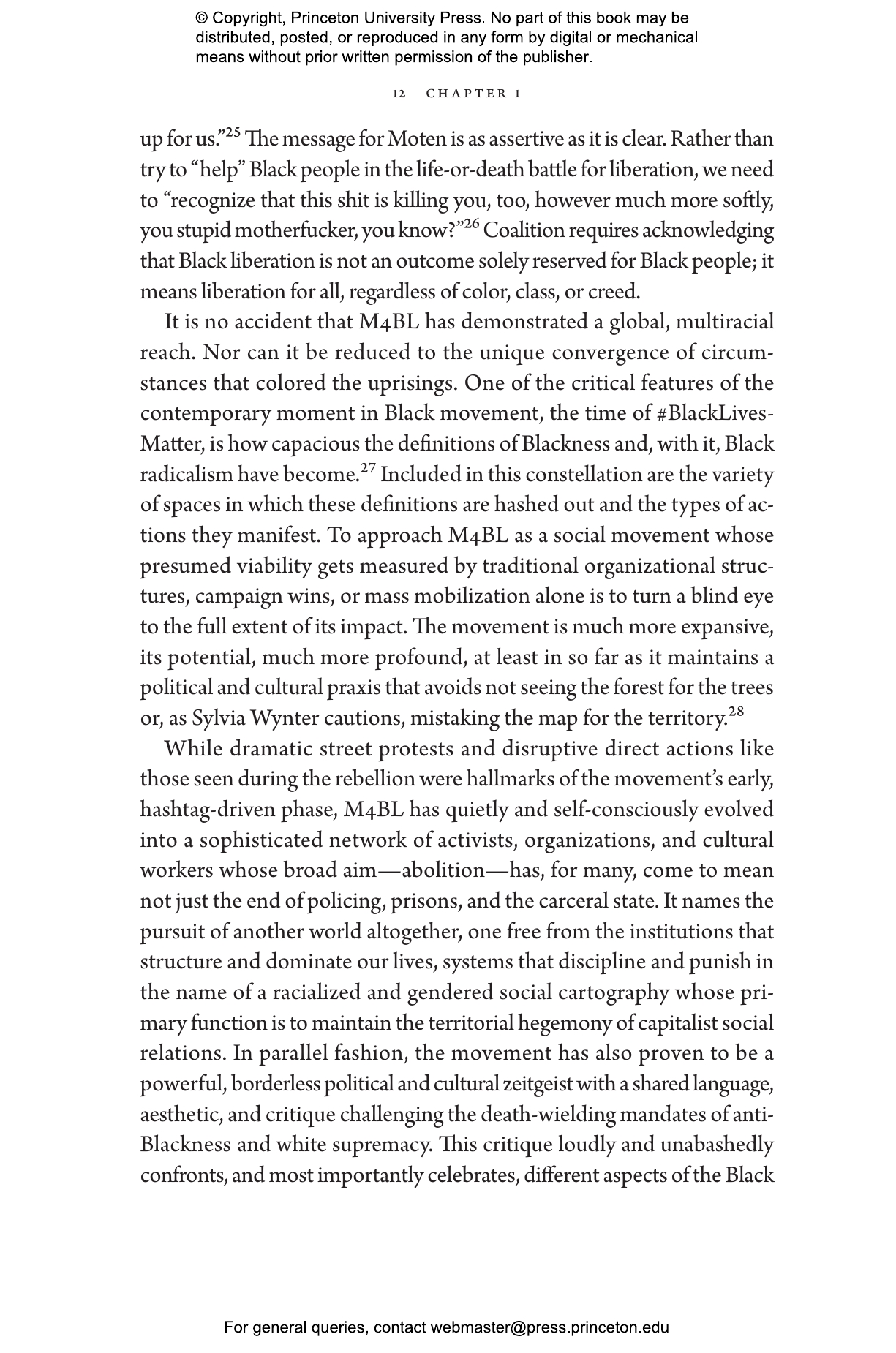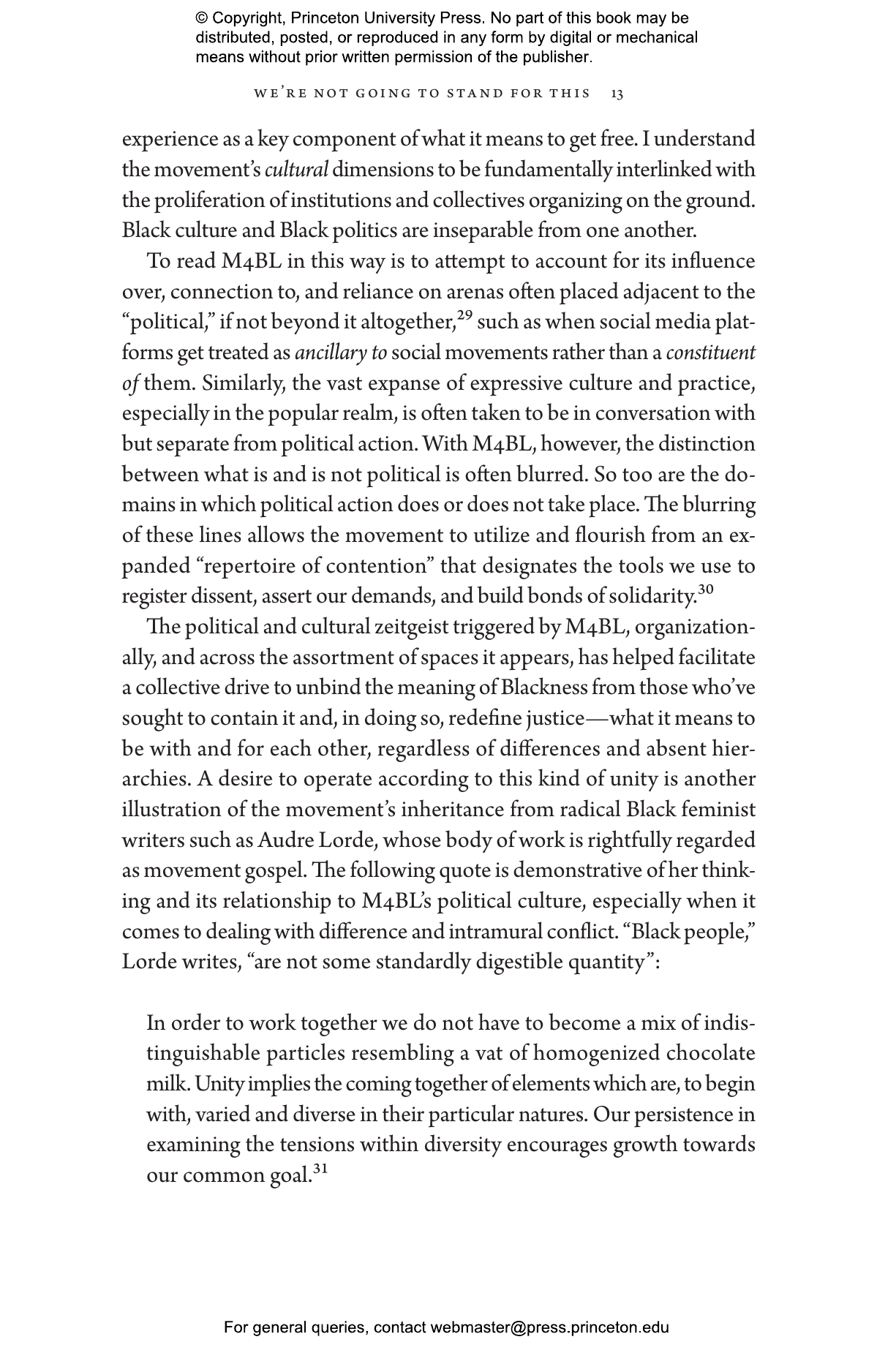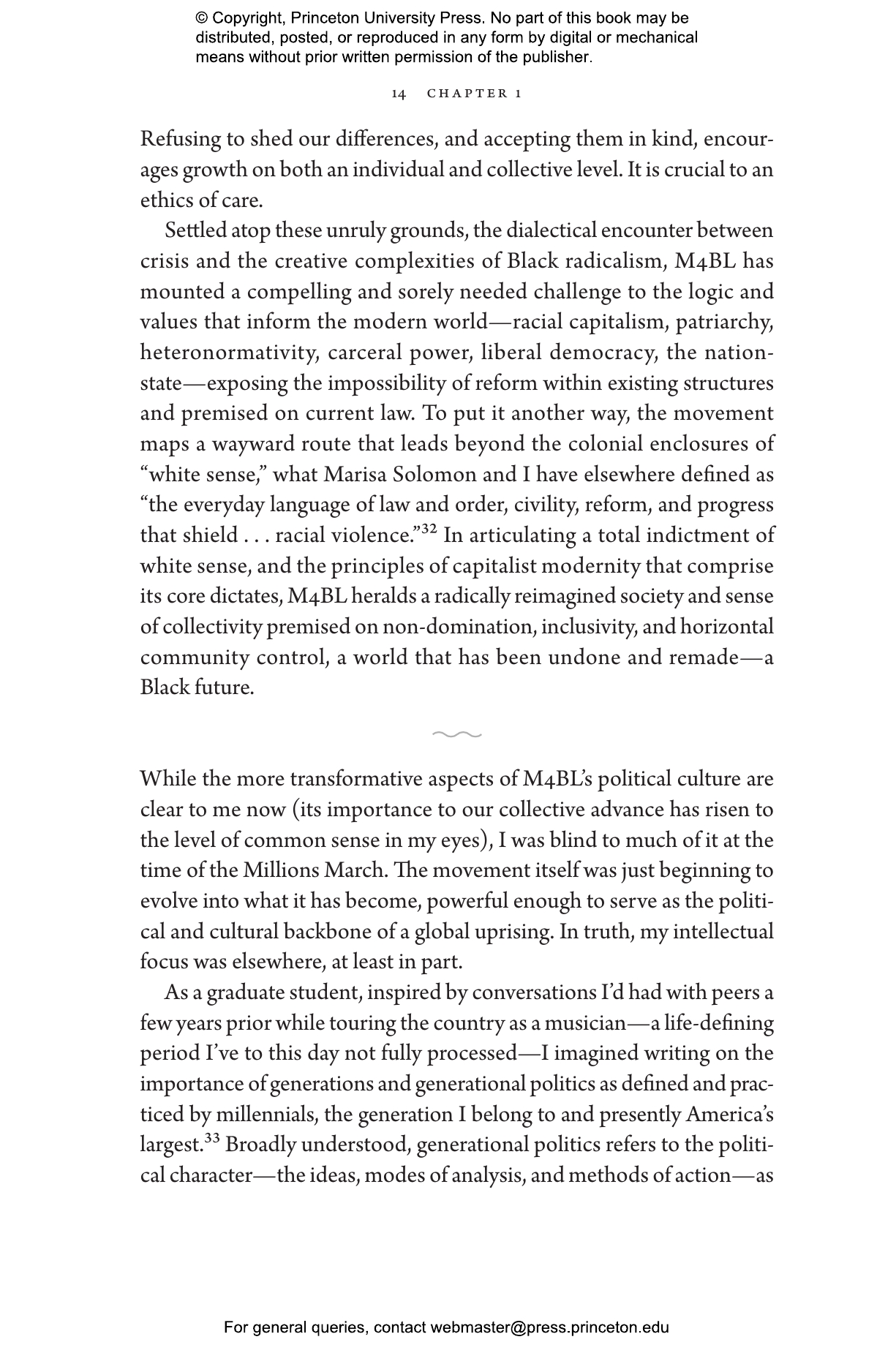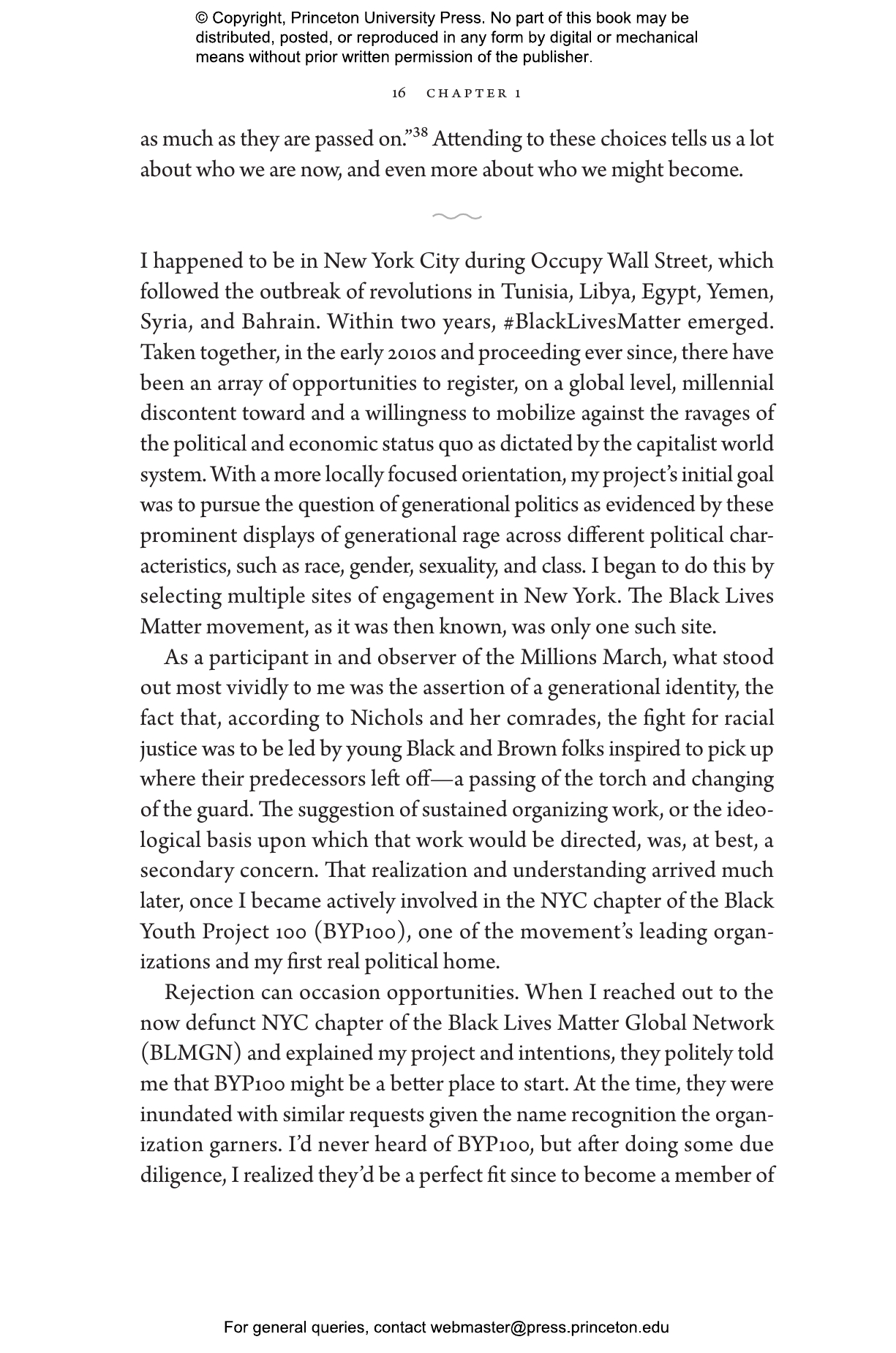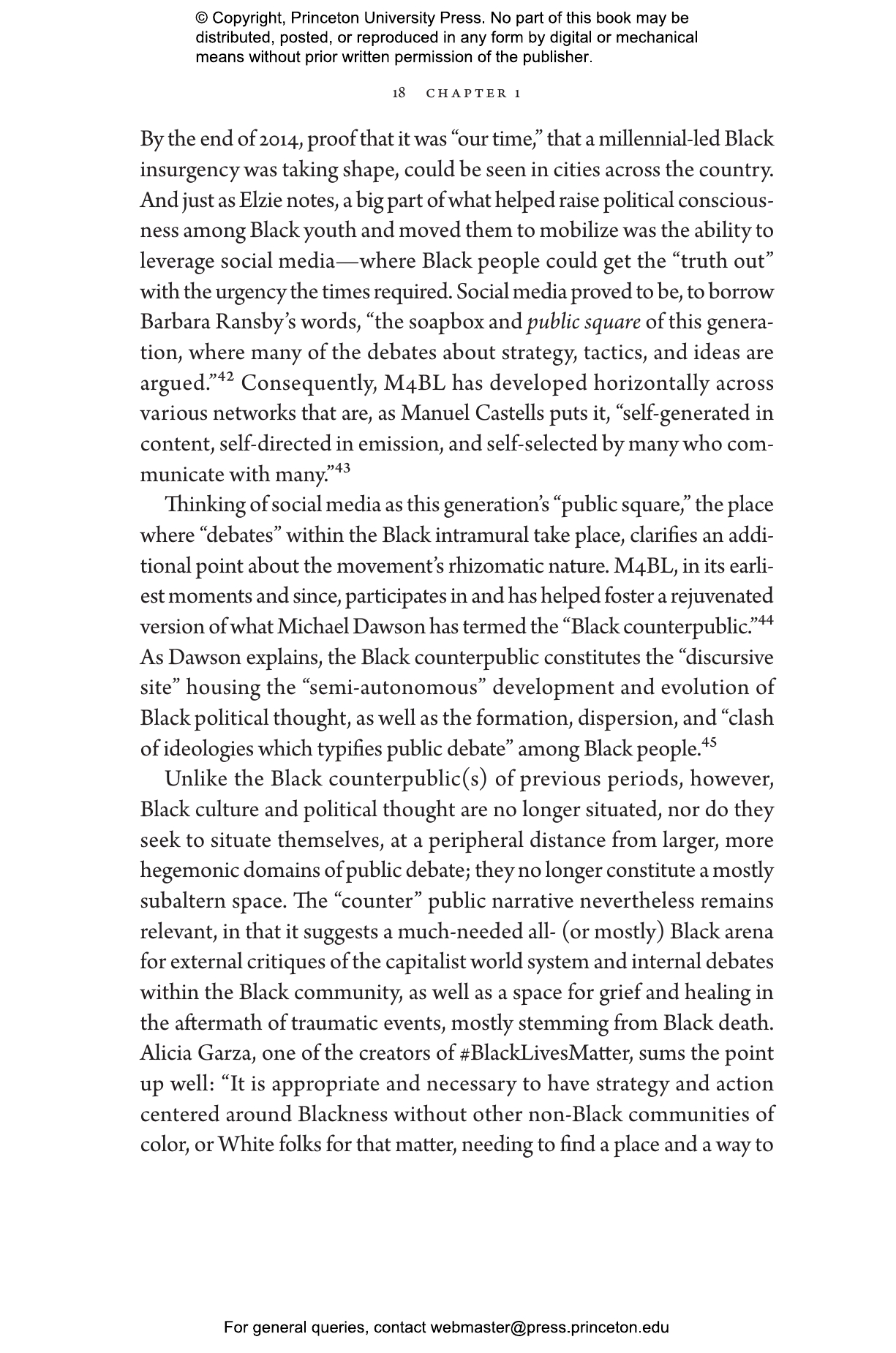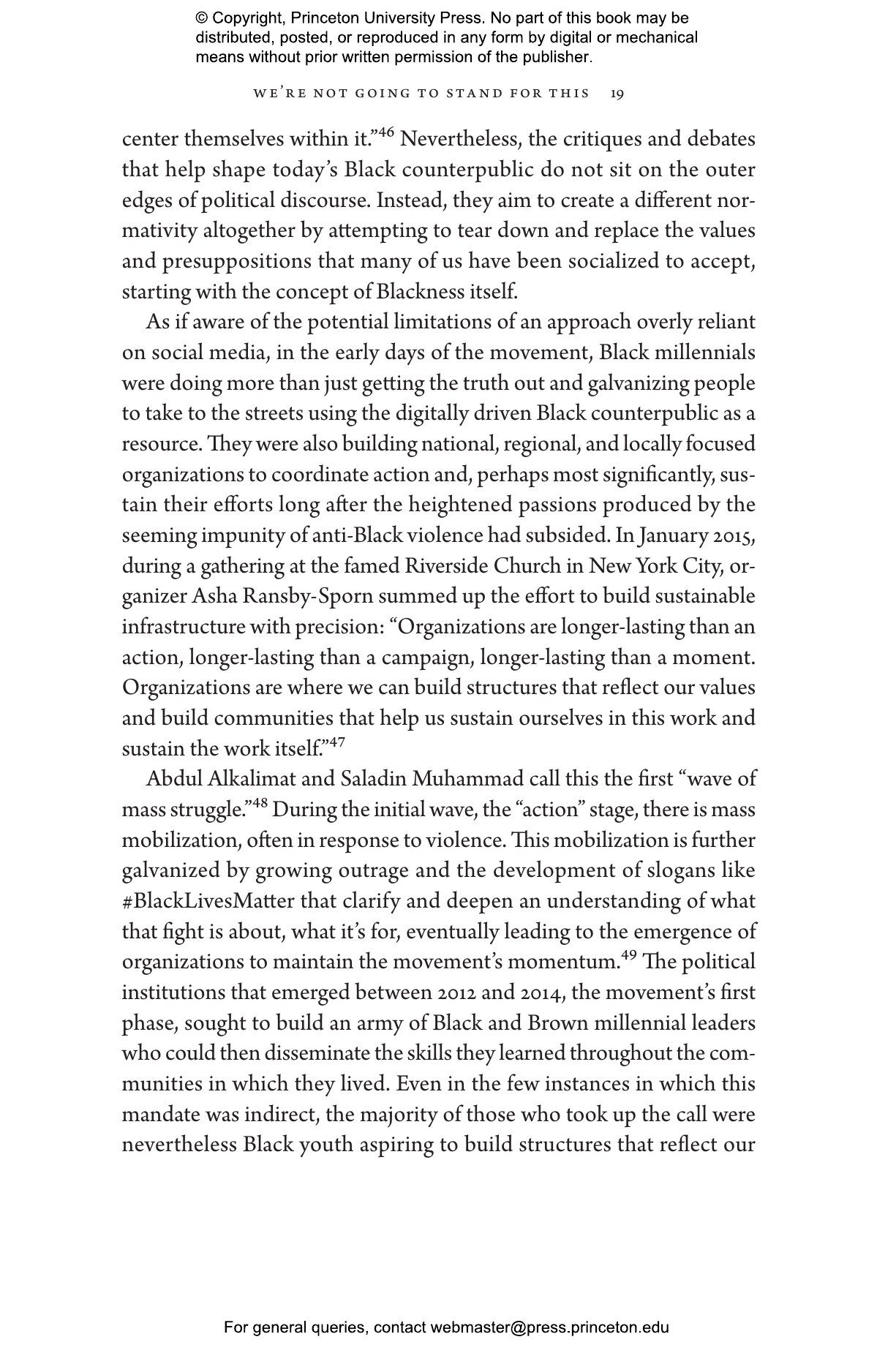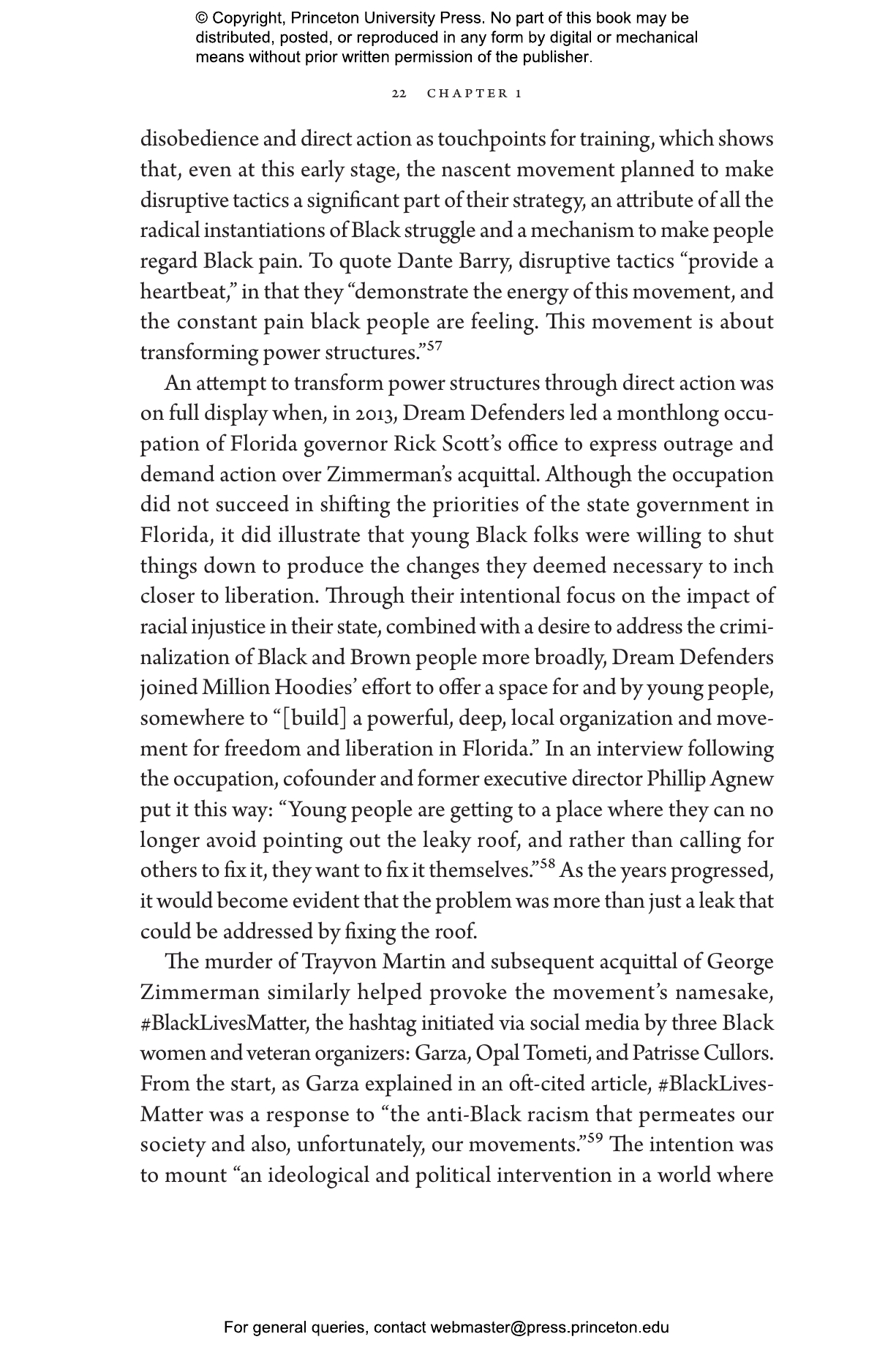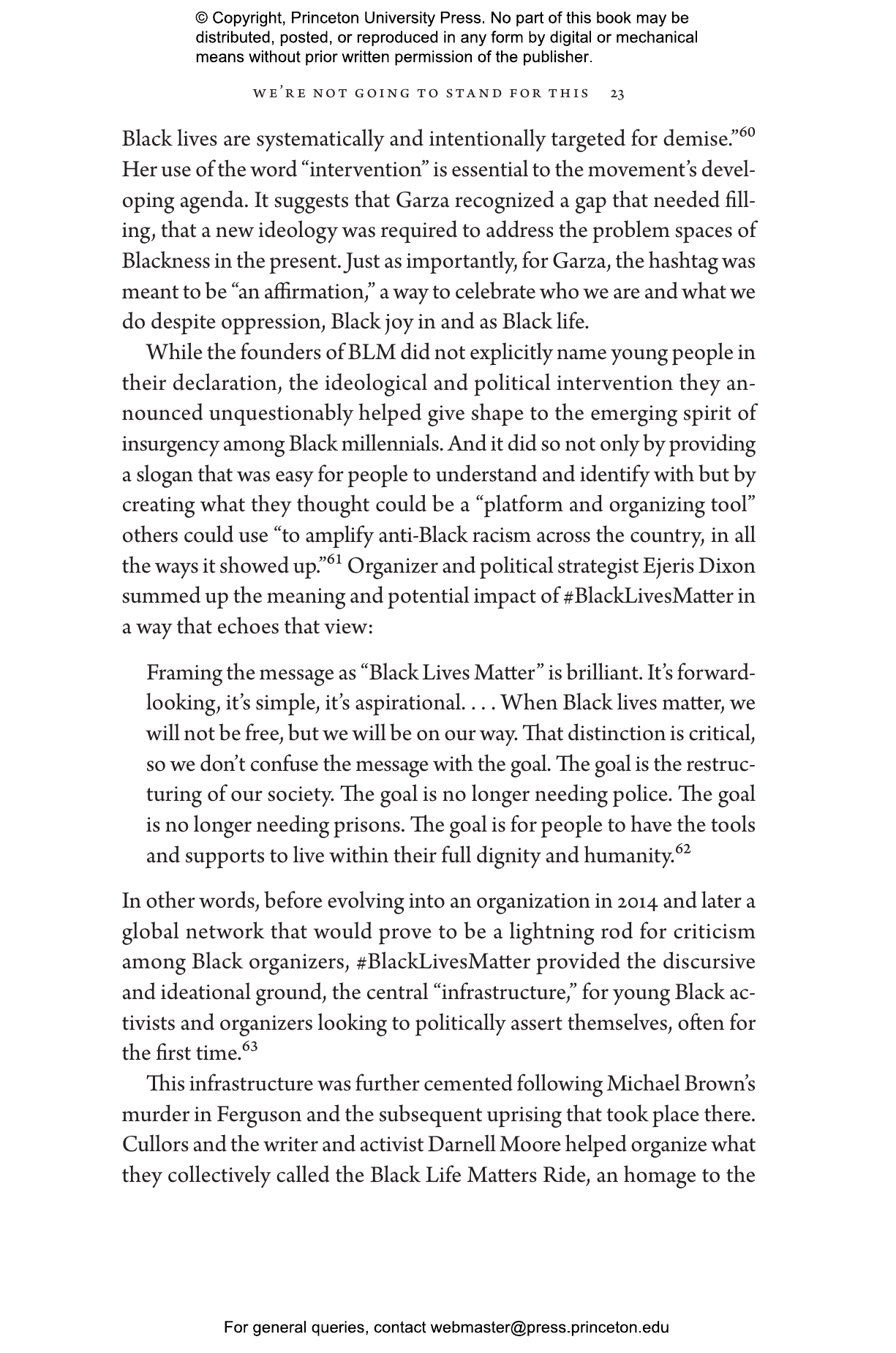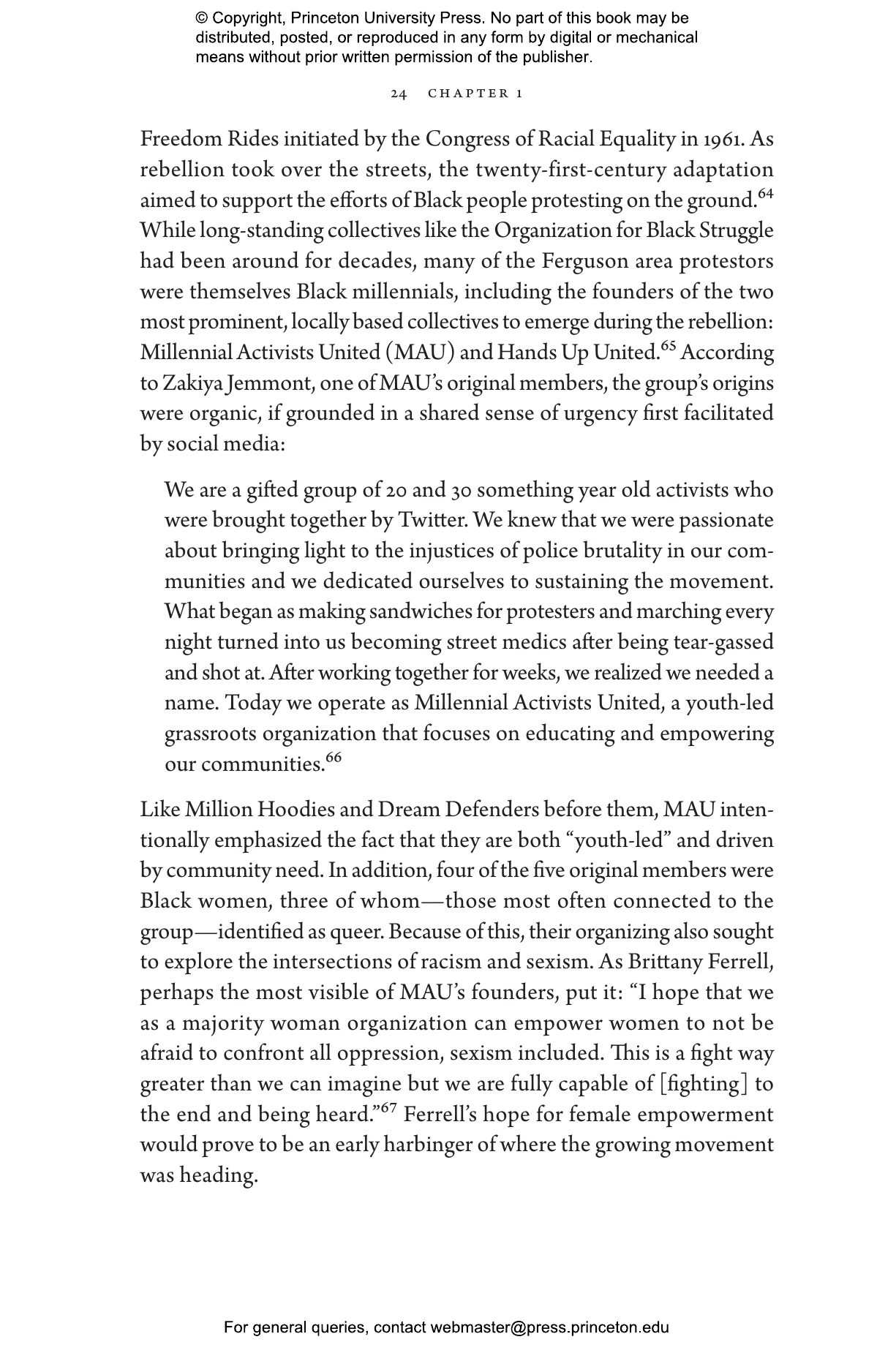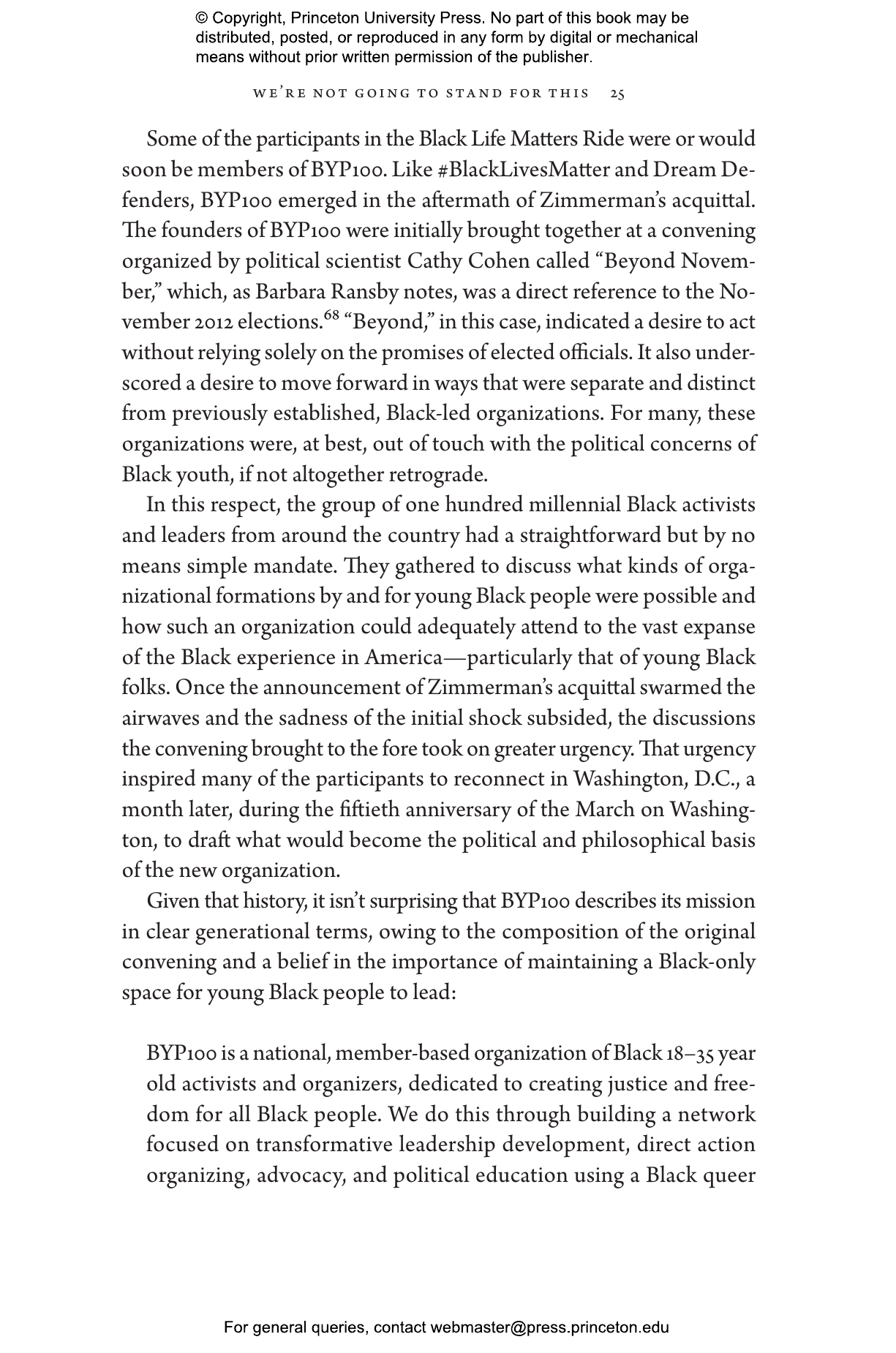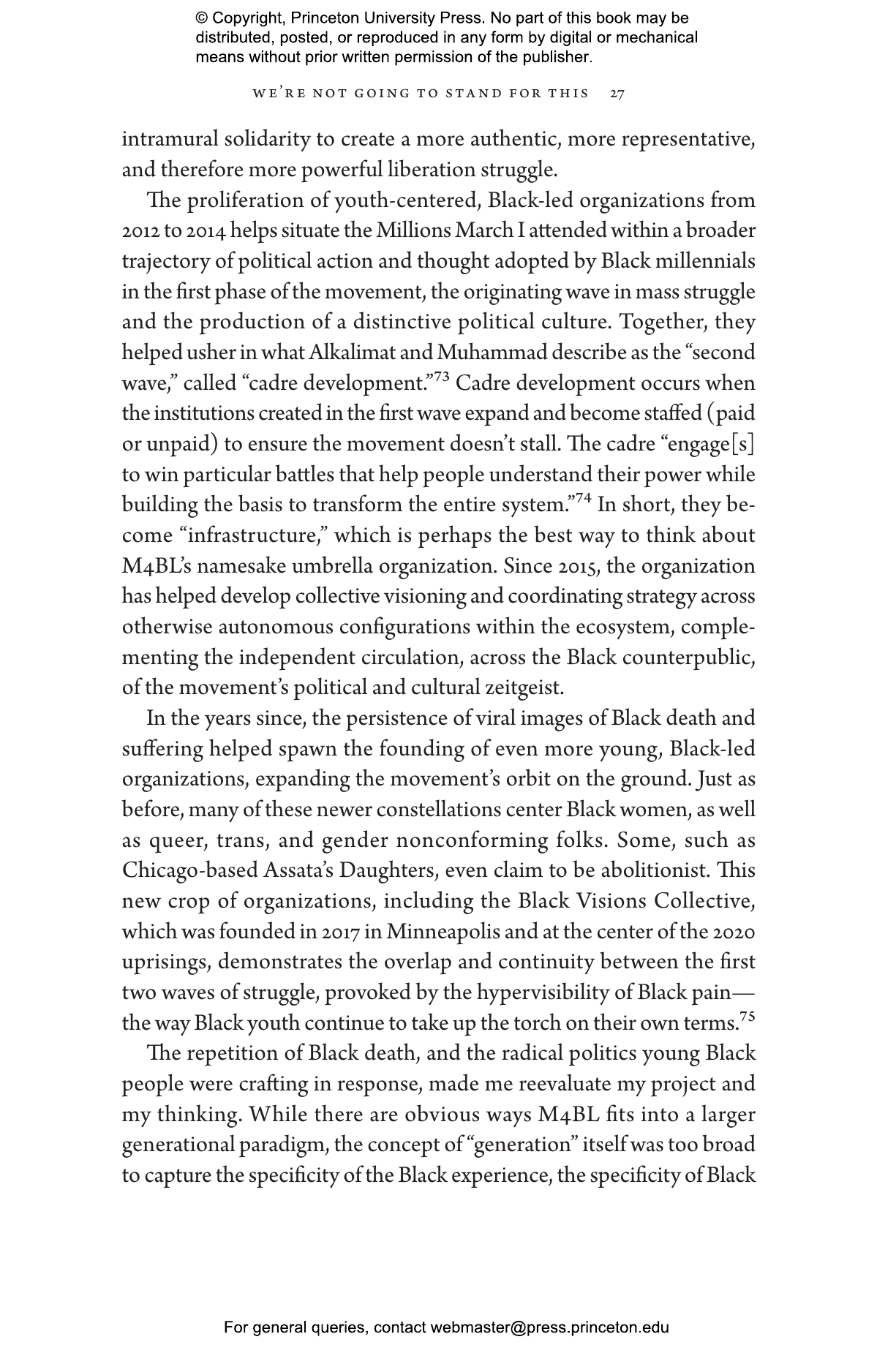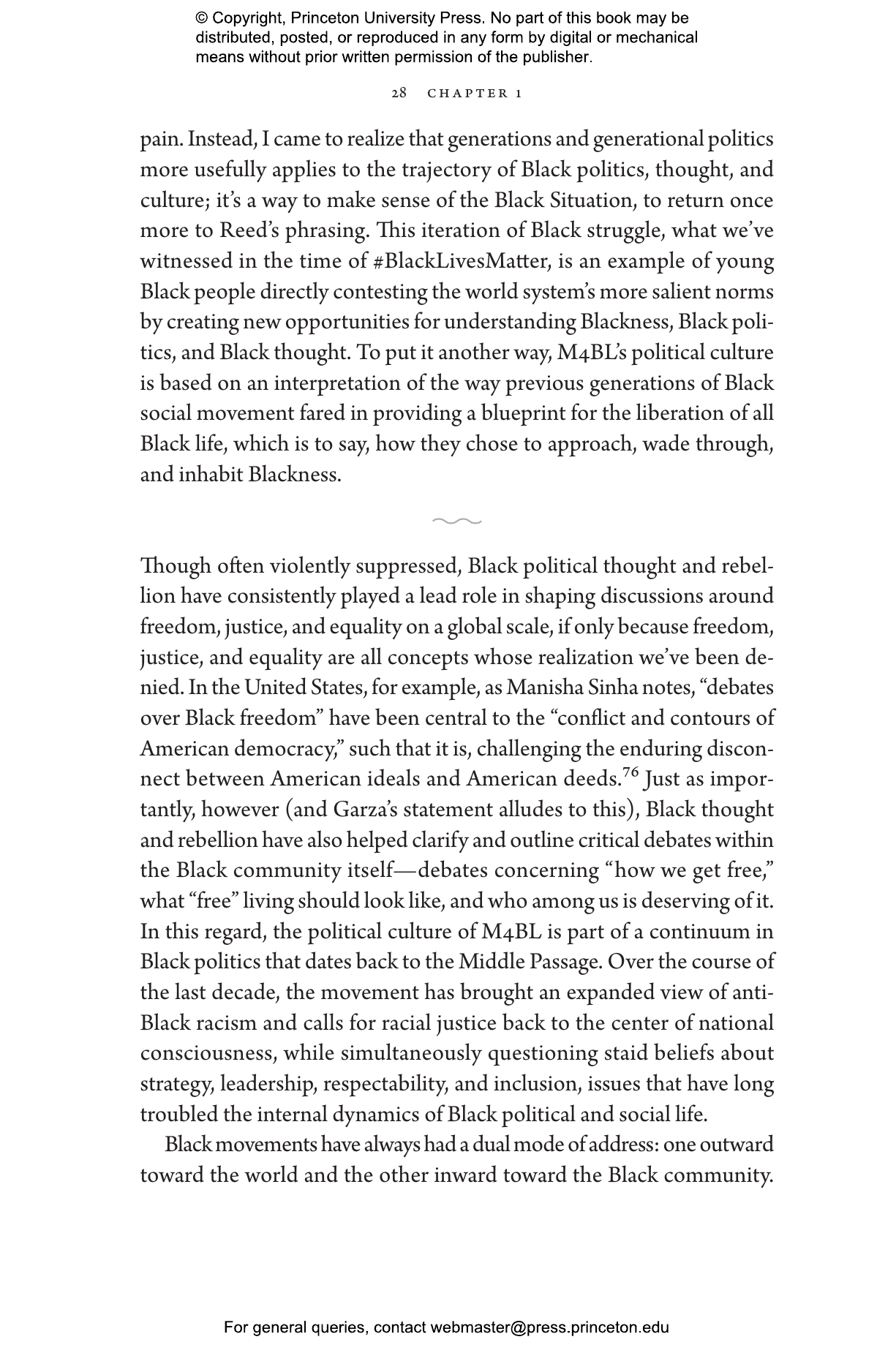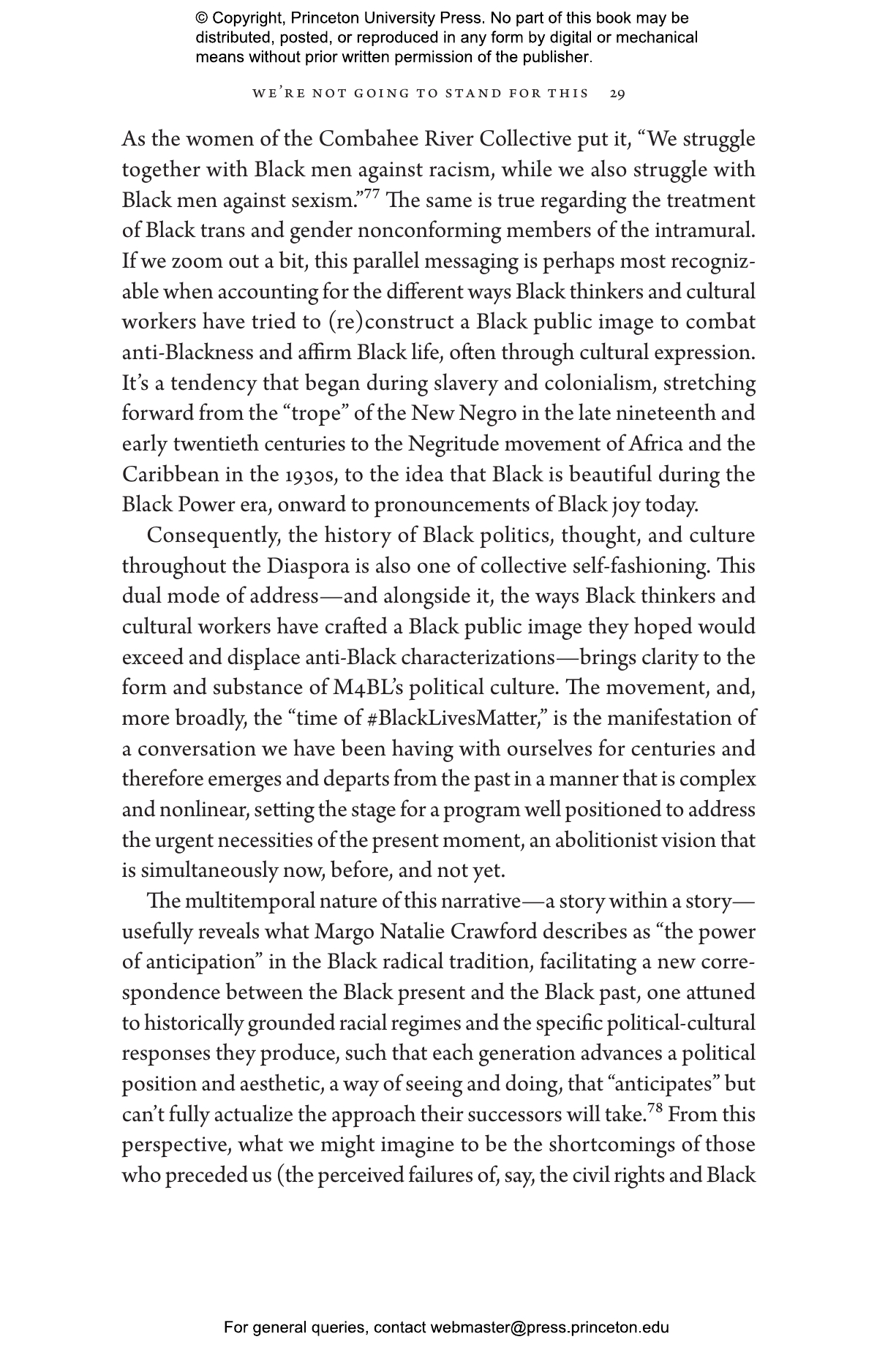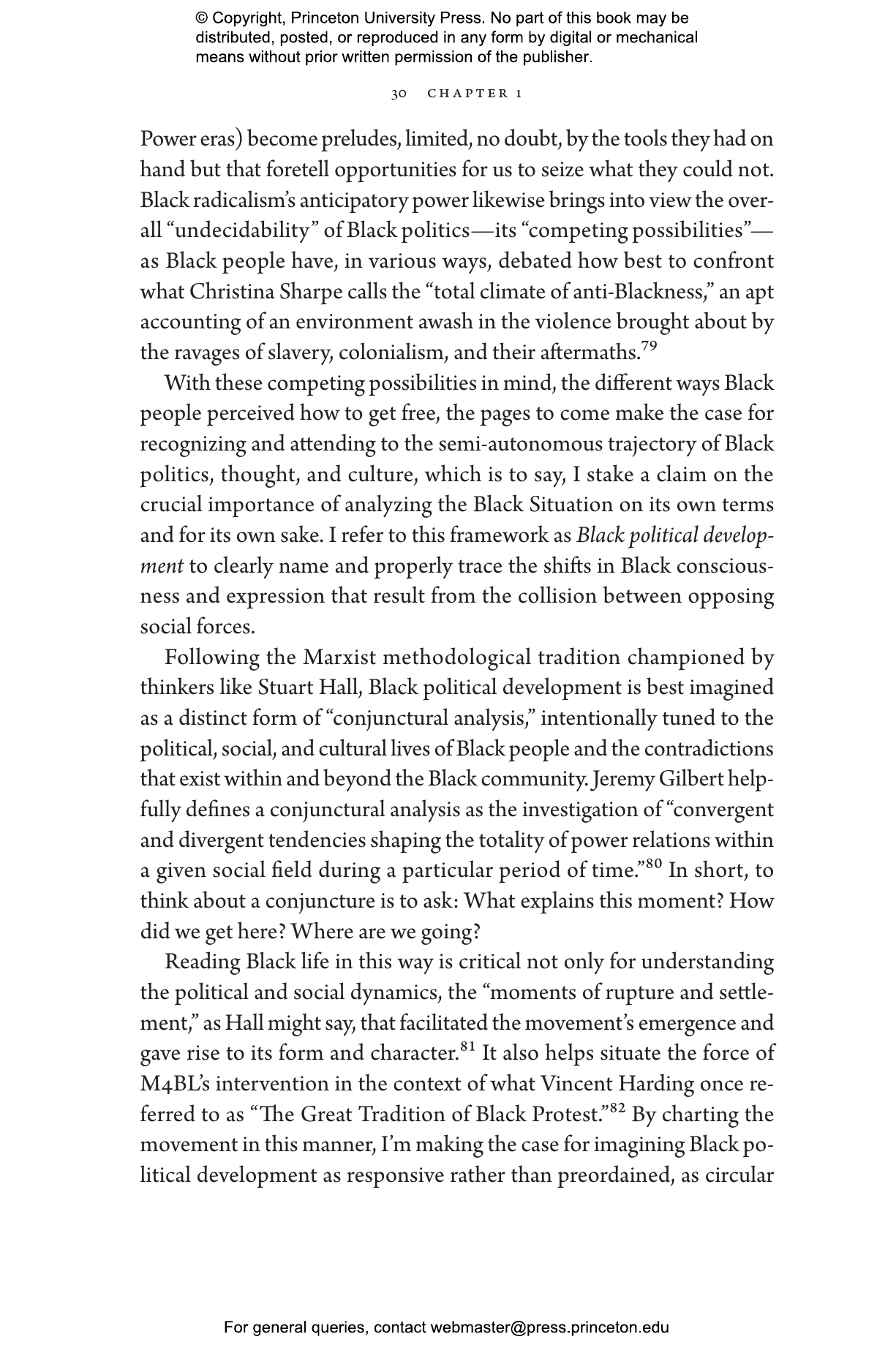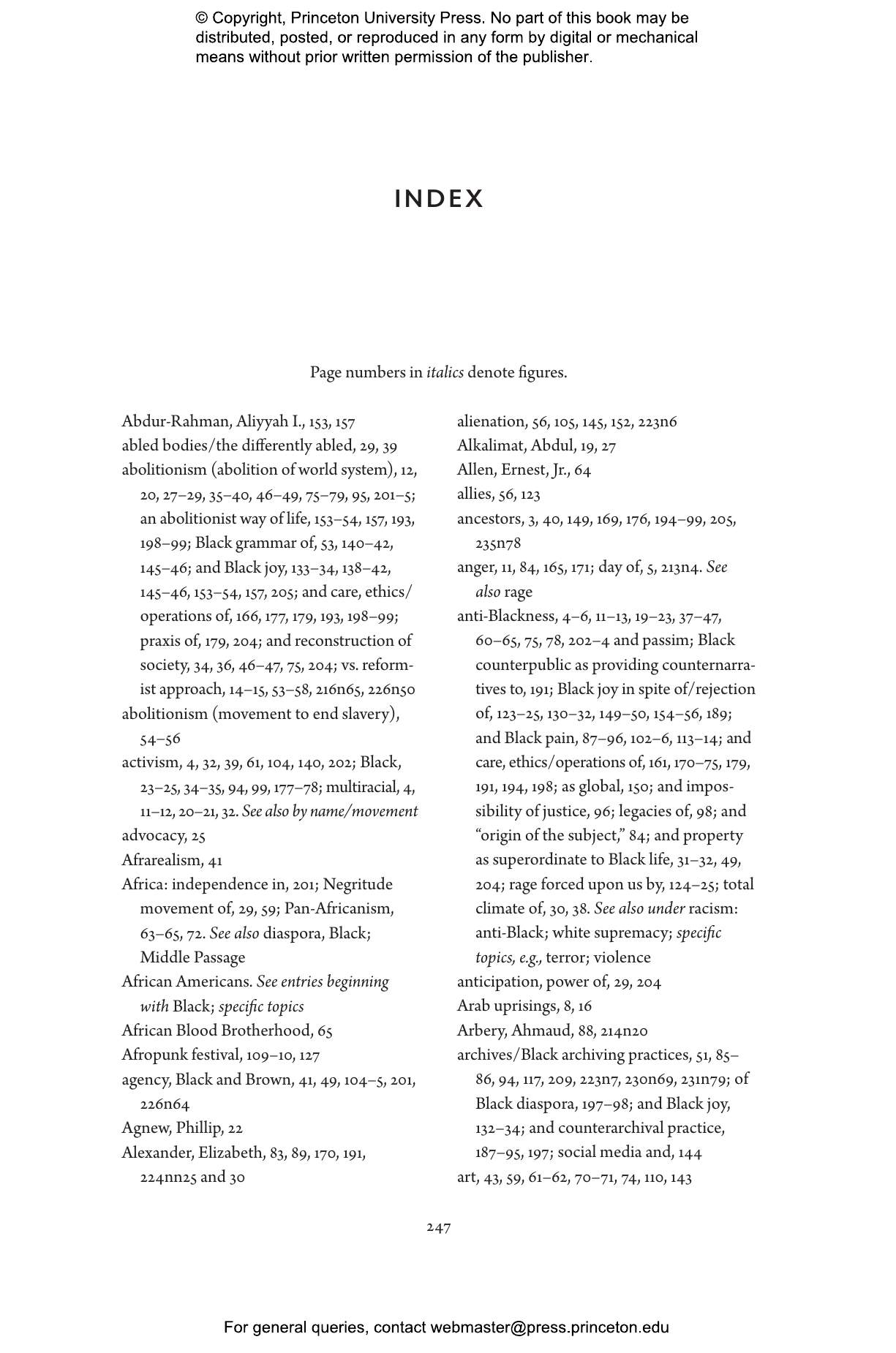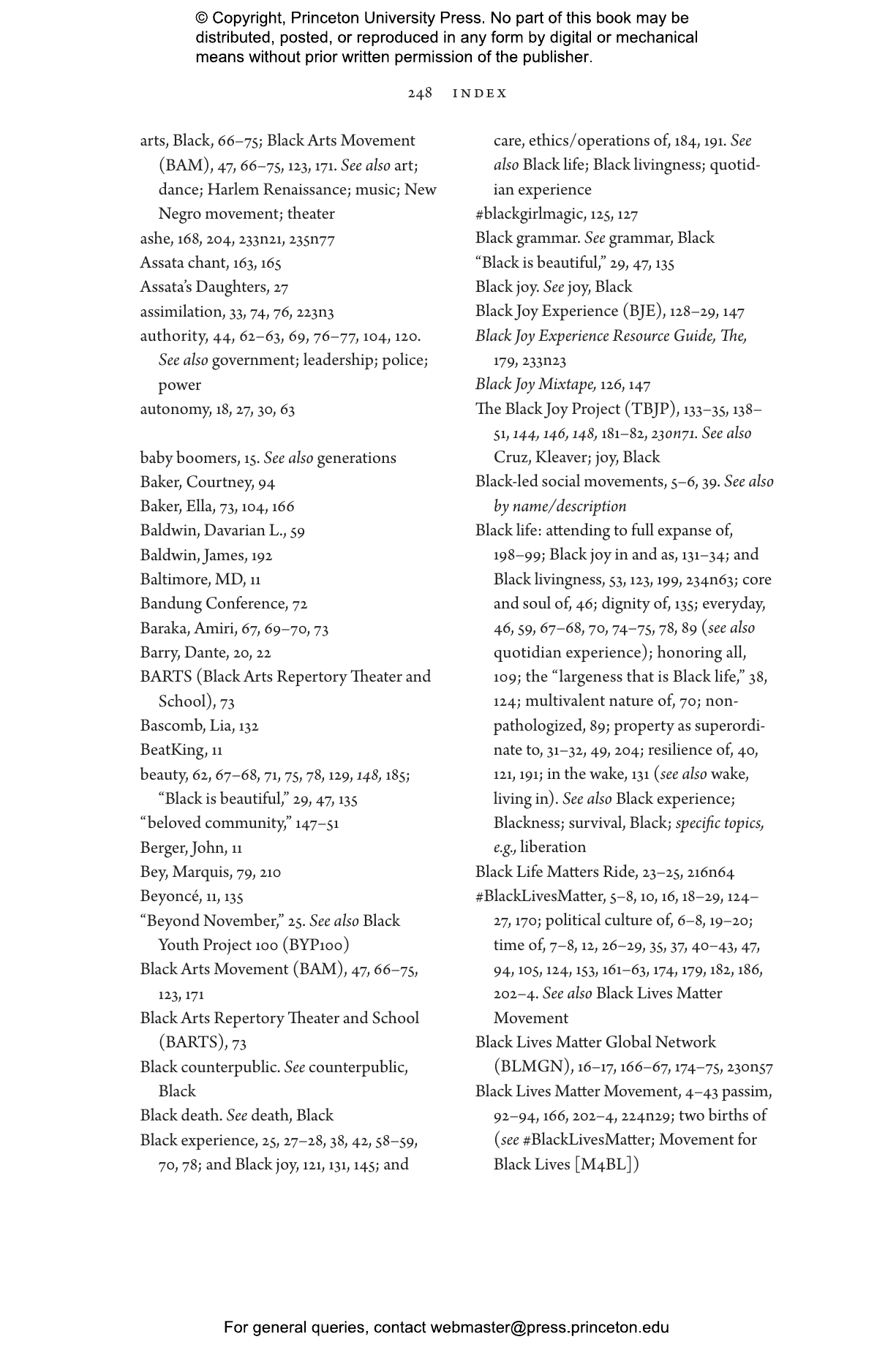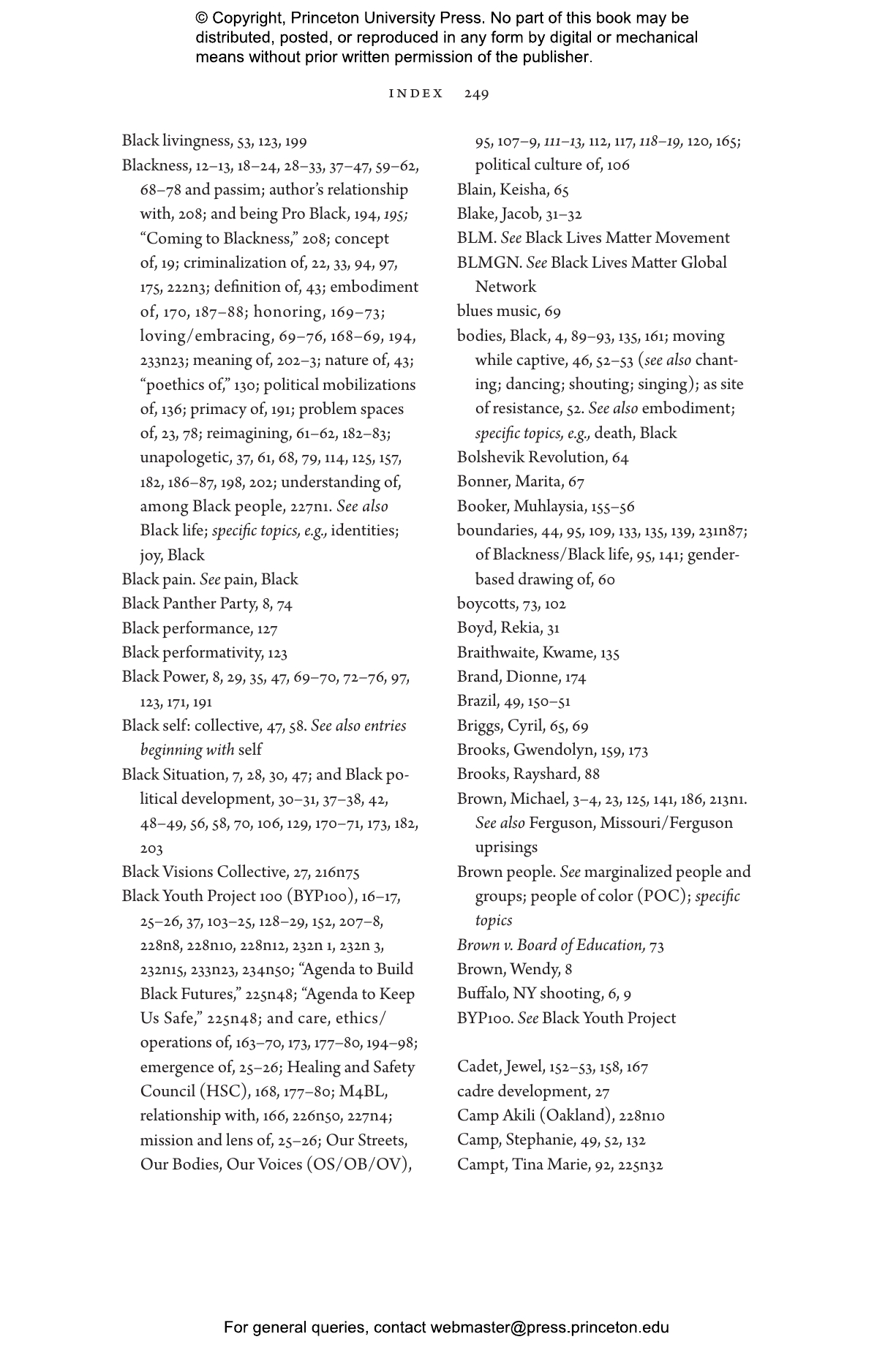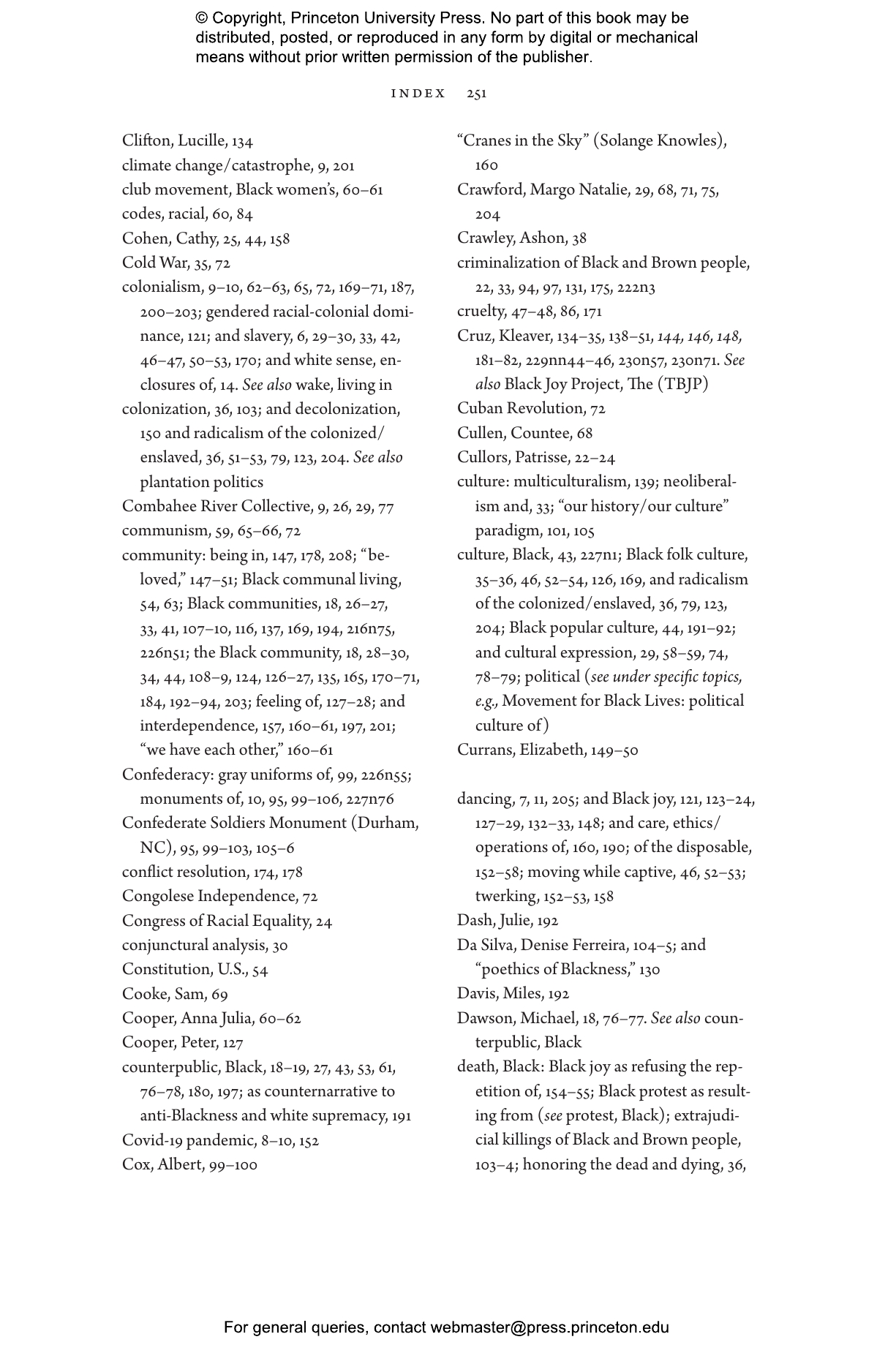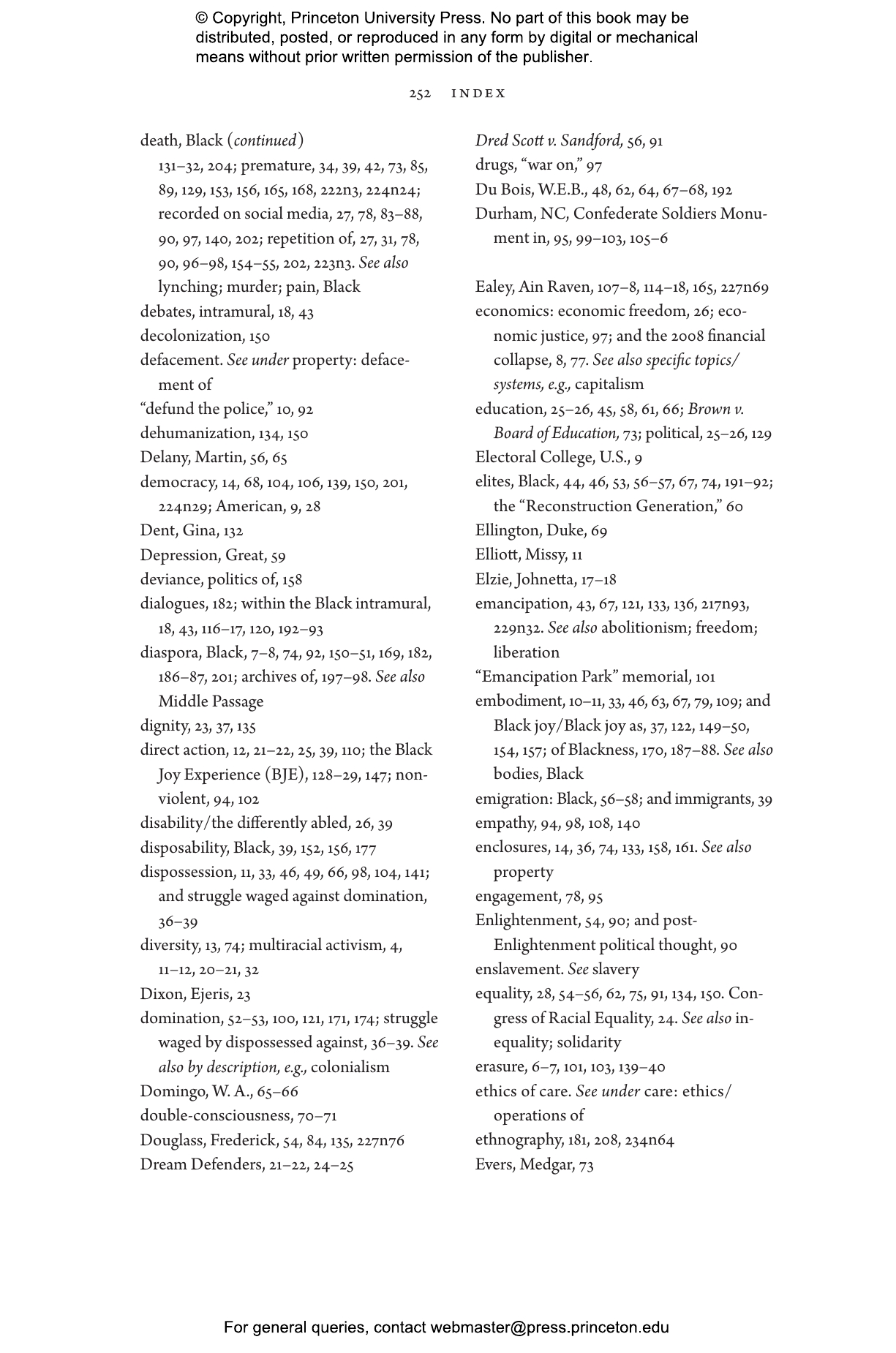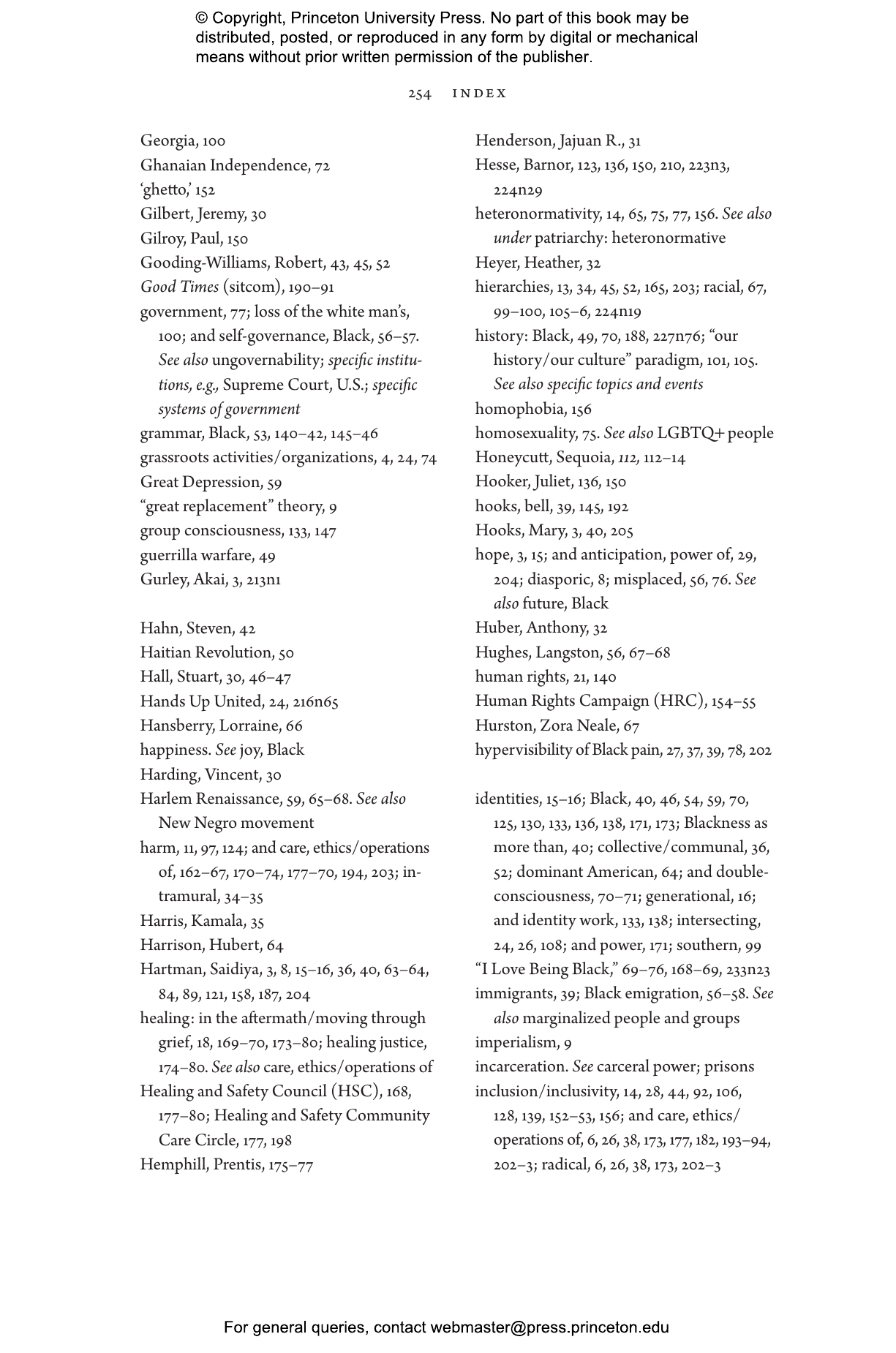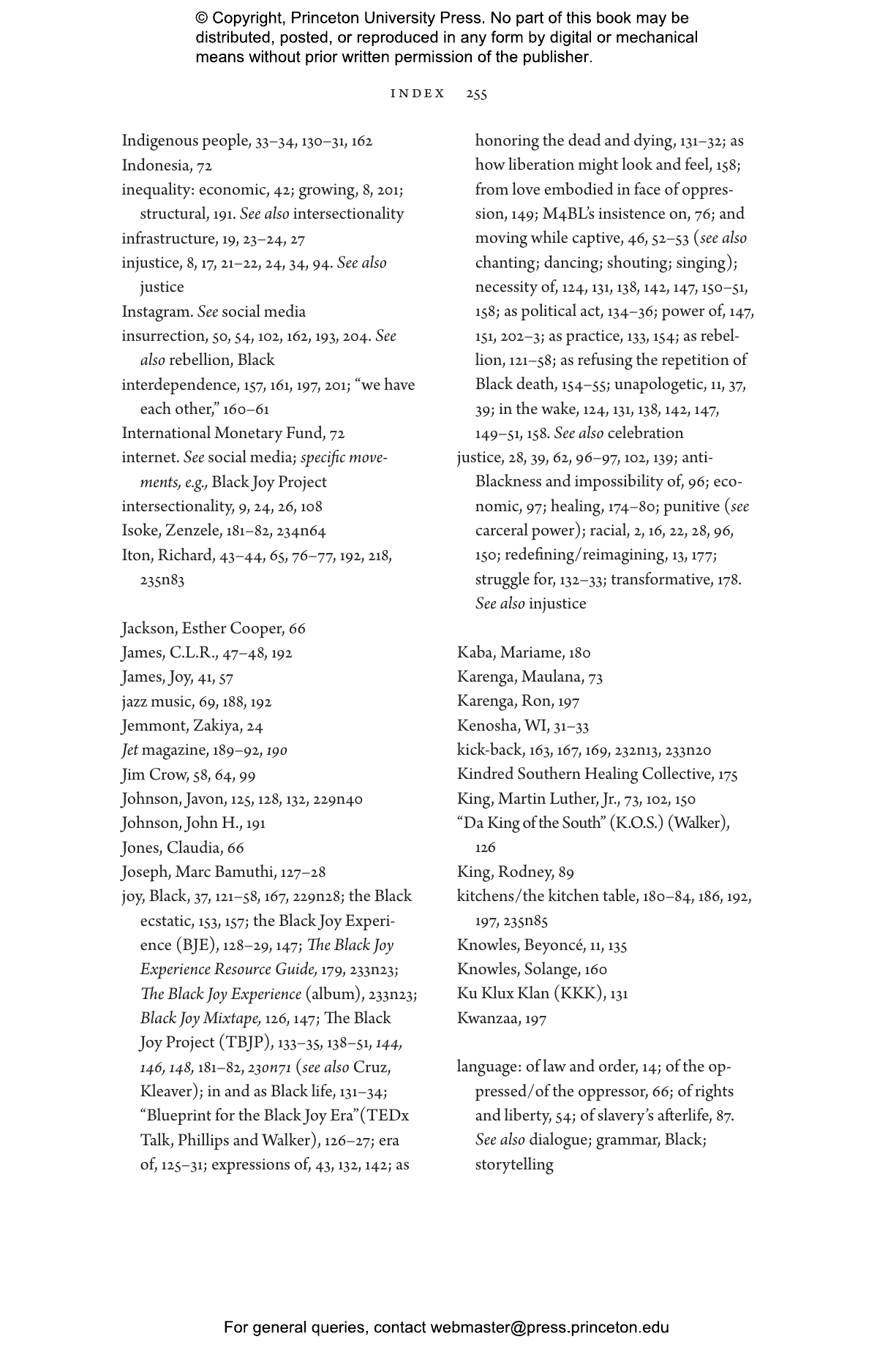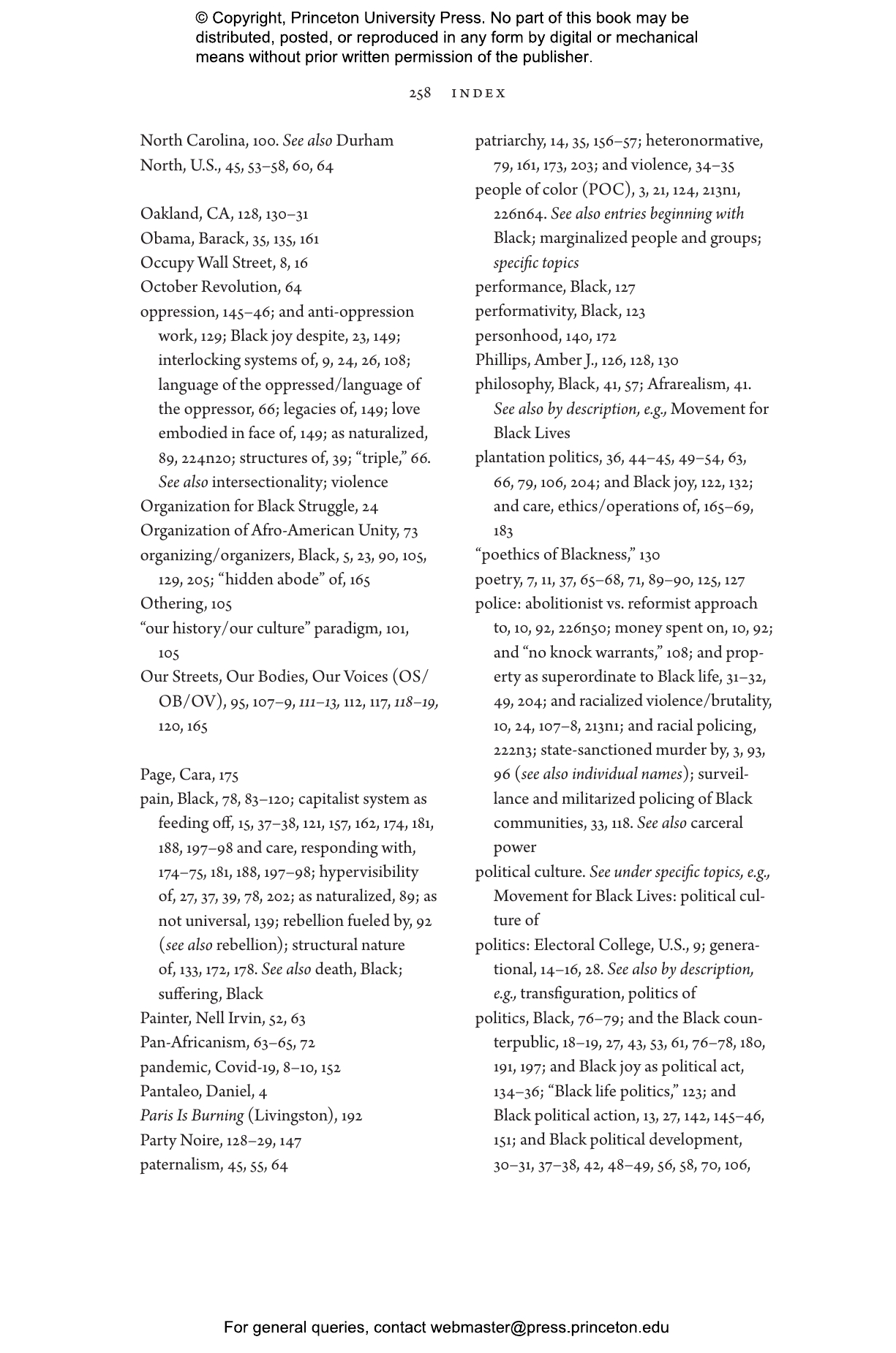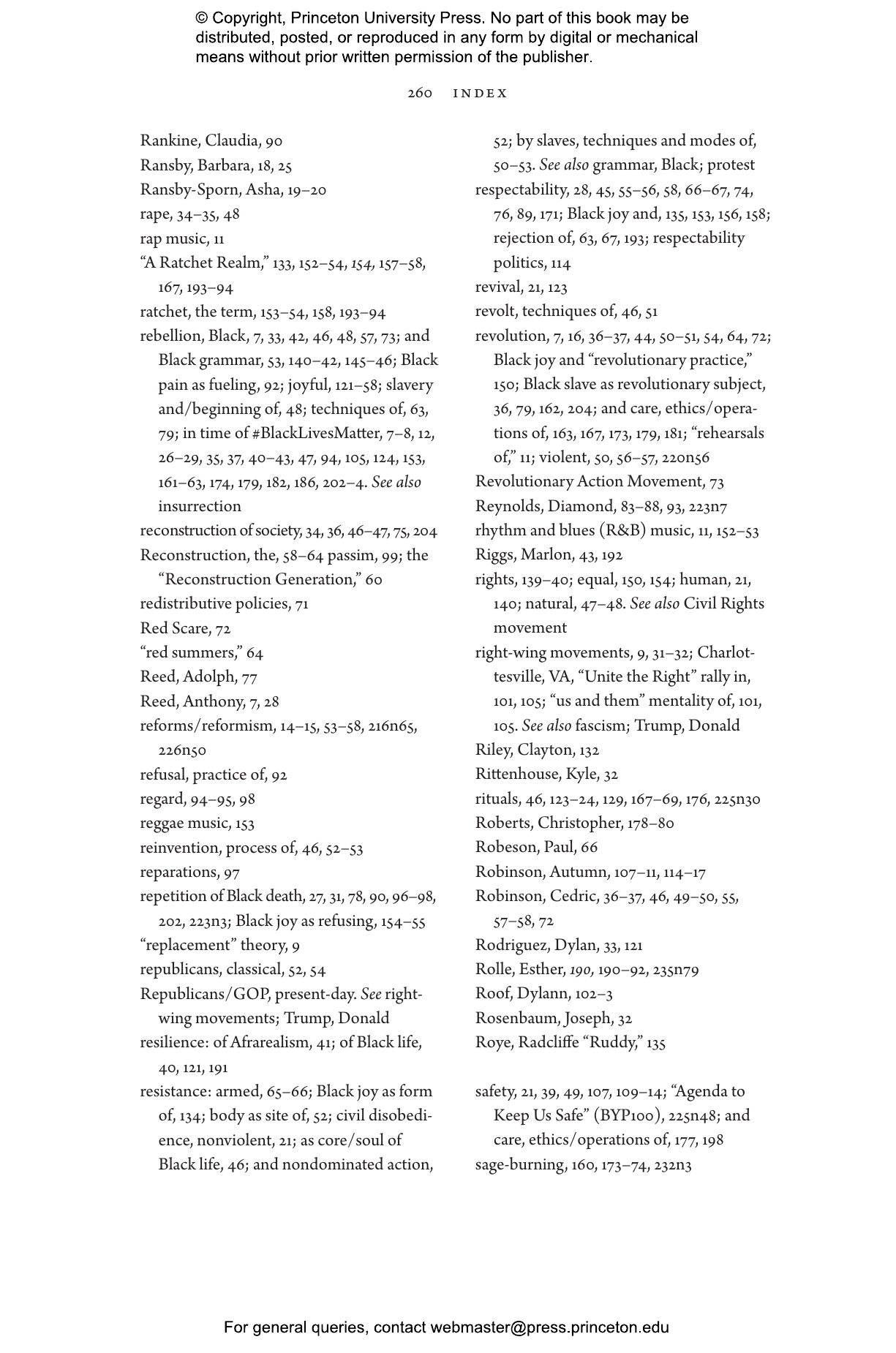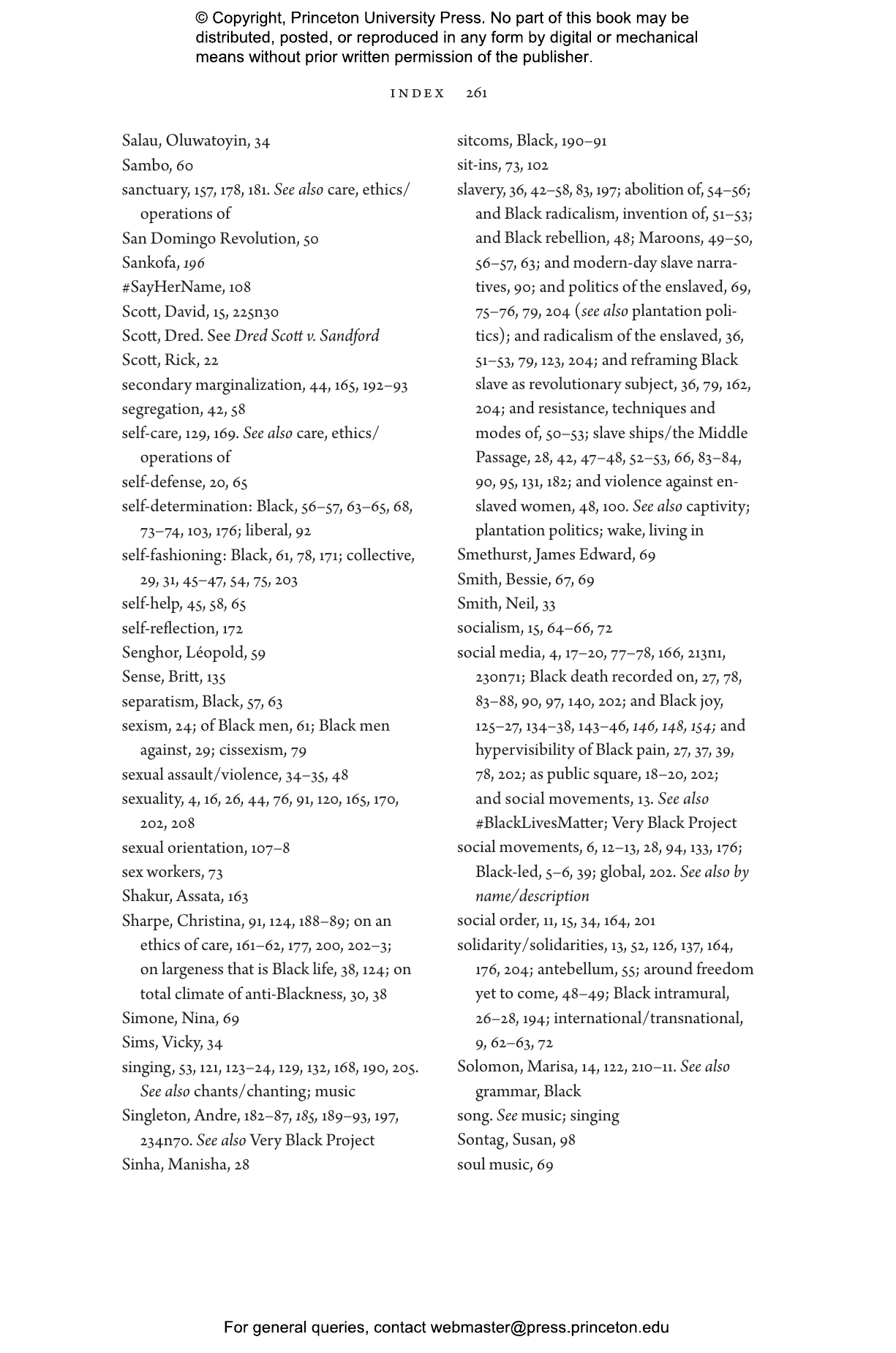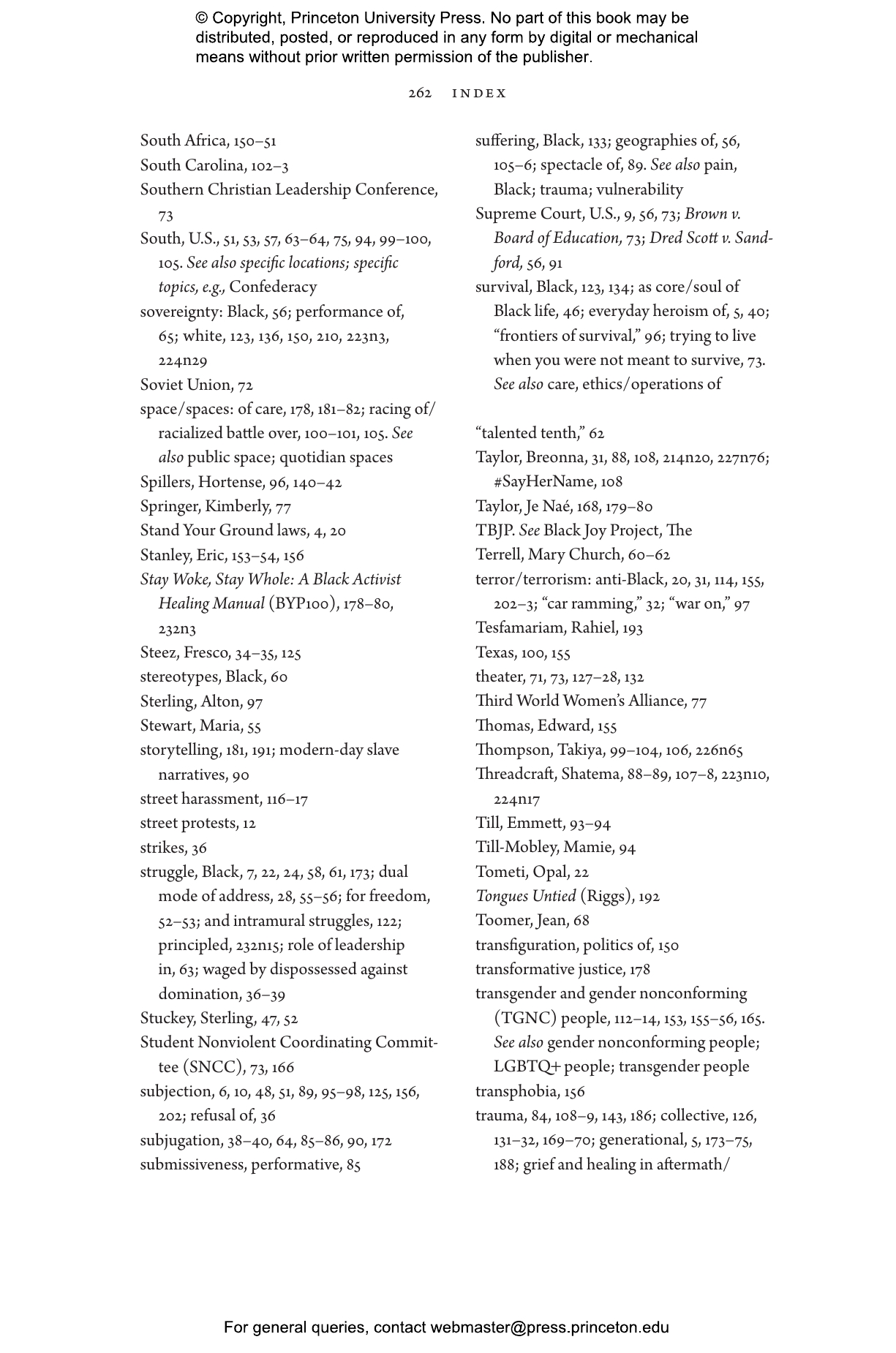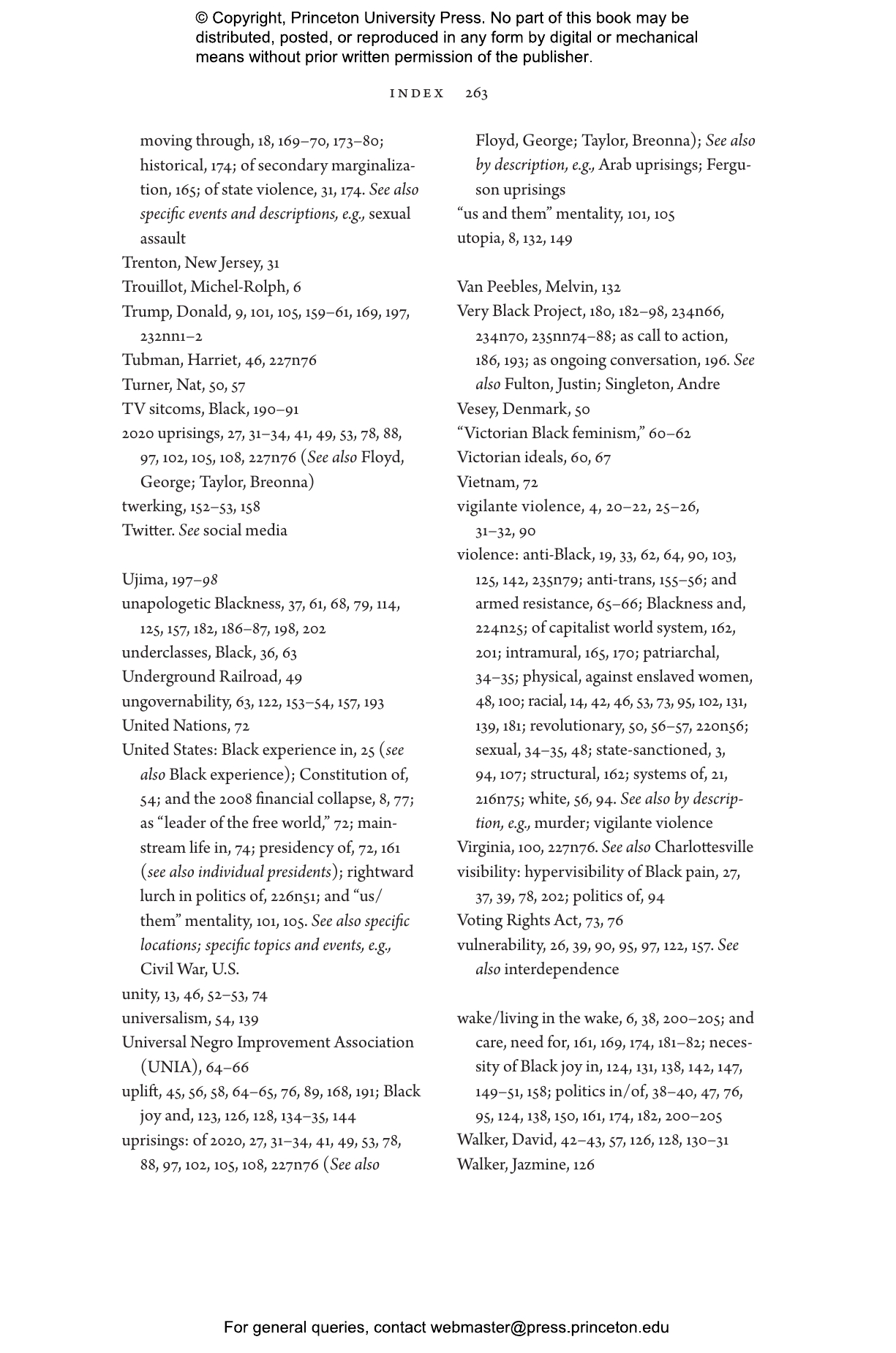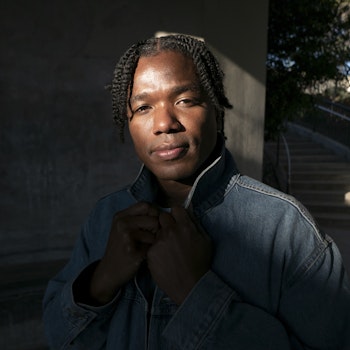When #BlackLivesMatter emerged in 2013, it animated the most consequential Black-led mobilization since the civil rights and Black power era. Today, the hashtag turned rallying cry is but one expression of a radical reorientation toward Black politics, protest, and political thought. To Build a Black Future examines the spirit and significance of this insurgency, offering a revelatory account of a new political culture—responsive to pain, suffused with joy, and premised on care—emerging from the centuries-long arc of Black rebellion, a tradition that traces back to the Black slave.
Drawing on his own experiences as an activist and organizer, Christopher Paul Harris takes readers inside the Movement for Black Lives (M4BL) to chart the propulsive trajectory of Black politics and thought from the Middle Passage to the present historical moment. Carefully attending to the social forces that produce Black struggle and the contradictions that arise within it, Harris illustrates how M4BL gives voice to an abolitionist praxis that bridges the past, present, and future, outlining a political project at once directed inward to the Black community while issuing an outward challenge to the world.
Essential reading for the age of #BlackLivesMatter, this visionary and provocative book reveals how the radical politics of joy, pain, and care, in sharp contrast to liberal political thought, can build a Black future that transcends ideology and pushes the boundaries of our political imagination.
Christopher Paul Harris is assistant professor of global and international studies at the University of California, Irvine.
���� To Build a Black Future, Christopher Paul Harris makes the revolution irresistible! This is not a book to be read once but one to return to whenever we get lost, a social compass bearing witness to where we have been, affirming where we are, and illuminating where we still might go.”—Ruha Benjamin, author of Viral Justice: How We Grow the World We Want
“To Build a Black Future is a loving and principled exploration of Black living, Black thought, and Black struggle. Everyone from beginners and active students to longtime scholars of Black liberation will find valuable and timely lessons in this book. I look forward to grappling with Harris’s ideas alongside my students and comrades in years to come.”—Charlene A. Carruthers, author of Unapologetic: A Black, Queer, and Feminist Mandate for Radical Movements
“Harris has written a powerful book on the Movement for Black Lives (M4BL) that details the ideology, practices, culture, and evolution of one of the most important organizations in both Black and left politics today. Although rooted in the Black radical tradition, Harris demonstrates how M4BL is working to build a new movement rooted in Black queer feminism that reimagines how we work for the freedom of Black and all people.”—Cathy J. Cohen, University of Chicago
���� To Build a Black Future, Harris helps lead a growing and important literature that utilizes the Movement for Black Lives as a bidirectional prism—it allows us to revisit the thinking of past Black leaders and intellectuals to help chart out a better future. Harris’s book spreads its wings to take the reader on not just an intellectual journey through traditions of Black thought that paved the way for the movement, but on an affective journey as well by sharing the testimony of his own experiences alongside his erudite reading of historical thinkers. To Build a Black Future is urgent reading for those of us wanting to not just have but to hope intelligently.”—Christopher J. Lebron, author of The Making of Black Lives Matter
“A sorely needed return to the basic ideas underneath the movements that are defining our political era. Important reading for Black activists, organizers, artists, and thinkers.”—Olúfẹ́mi O. Táíwò, author of Elite Capture: How the Powerful Took Over Identity Politics (And Everything Else)
“Harris tarries with society-caused pain instead of pursuing rights to displace its consequences. If Harris is correct, Black futures require joy and care to sustain ourselves, period. We owe the world nothing more than our Black presence, which comes with a multiverse of creative disavowals of hierarchy and violence and sonic refutations of justifications for captivity, disposability, and theft. Harris recognizes us as the ratchet of the earth. That condition—and its houseless, addicted, perverse, orphaned, refugee, dispossessed, undocumented, poly and trans and intentionally queer wisdom—can disrupt enough of the anti-Black present to help us reach for a future free of manufactured catastrophe and willful ecocide.”—Tiffany Willoughby-Herard, University of California, Irvine, and University of South Africa



